IB ToK Essay Titles and Topics: May 2023
Here are links to ideas and suggestions relating to the the six May 2023 IB ToK Essay topics:
- Topic 1. Is replicability necessary in the production of knowledge? Discuss with reference to two areas of knowledge.
- Topic 2. For artists and natural scientists, which is more important: what can be explained or what cannot be explained? Discuss with reference to the arts and the natural sciences.
- Topic 3. Does it matter if our acquisition of knowledge happens in "bubbles" where some information and voices are excluded? Discuss with reference to two areas of knowledge.
- Topic 4. Do you agree that it is "astonishing that so little knowledge can give us so much power" (Bertrand Russell)? Discuss with reference to the natural sciences and one other area of knowledge.
- Topic 5. Are visual representations always helpful in the communication of knowledge? Discuss with reference to the human sciences and mathematics.
- Topic 6. To what extent is the knowledge we produce determined by the methodologies we use? Discuss with reference to history and one other area of knowledge.


Title 1: Is replicability necessary in the production of knowledge? Discuss with reference to two areas of knowledge.
Thoughts to consider with essay 1 include:
- the distinction between necessary and sufficient requirements
- the relation between replicability and objectivity
- the relation between replicability and sharable perspectives
These thoughts, and others, will be developed here shortly: come back soon!
Title 2: For artists and natural scientists, which is more important: what can be explained or what cannot be explained? Discuss with reference to the arts and the natural sciences.
Thoughts to consider with essay 2 include:
- the relation between explicability and effability
- the limits of language and expressibility
- the relation between explanation, understanding and knowledge
Title 3: Does it matter if our acquisition of knowledge happens in "bubbles" where some information and voices are excluded? Discuss with reference to two areas of knowledge.
Thoughts to consider with essay 3 include:
- can there be purely subjective knowledge?
- can there be purely objective knowledge?
- what is required to share another's perspective?
Title 4: Do you agree that it is "astonishing that so little knowledge can give us so much power" (Bertrand Russell)? Discuss with reference to the natural sciences and one other area of knowledge.
Thoughts to consider with essay 4 include:
- the varieties or types of power
- is knowledge always inversely proportional to power
- could one have power without any knowledge?
Title 5: Are visual representations always helpful in the communication of knowledge? Discuss with reference to the human sciences and mathematics.
Thoughts to consider with essay 5 include:
- the relevance of truth to representation
- the distinction between practical and theoretical knowledge
- is written language a visual representation?
Title 6: To what extent is the knowledge we produce determined by the methodologies we use? Discuss with reference to history and one other area of knowledge.
Thoughts to consider with essay 6 include:
- the difference between a method and a methodology
- can any knowledge be unmethodically?
- must a methodology be consciously deployed?
- 1. Is replicability necessary in the production of knowledge? Discuss with reference to two areas of knowledge.
- 2. For artists and natural scientists, which is more important: what can be explained or what cannot be explained? Discuss with reference to the arts and the natural sciences.
- 3. Does it matter if our acquisition of knowledge happens in "bubbles" where some information and voices are excluded? Discuss with reference to two areas of knowledge.
- 4. Do you agree that it is "astonishing that so little knowledge can give us so much power" (Bertrand Russell)? Discuss with reference to the natural sciences and one other area of knowledge.
- 5. Are visual representations always helpful in the communication of knowledge? Discuss with reference to the human sciences and mathematics.
- 6. To what extent is the knowledge we produce determined by the methodologies we use? Discuss with reference to history and one other area of knowledge.
- About Dr Phil Joyce
- Standard of Service
- Terms of Engagement

- Philosophy Degrees by Distance Learning
- Critical Thinking Tutor
- Oxbridge Application Tutor
- Logic Tutor
- University Philosophy Application Advice

This site is using cookies as specified in the cookies policy to track your preferences and activity.
- Our Writers
ToK Essay Prompts Demystified: Interpreting and Tackling 2023's Questions
Navigating the complex web of ToK essay prompts can feel like trying to decipher an ancient manuscript – it's challenging, yet deeply rewarding. Every year, the IB presents students with fresh, thought-provoking questions that aren’t just about showcasing your knowledge but also your ability to reason, reflect, and engage in intellectual play.
Now, 2023's prompts have landed, and you might be wondering: "How do I even begin to approach these?" Relax. It's normal to feel overwhelmed. However, understanding your prompt is the first (and perhaps most crucial) step towards crafting an essay that stands out. A well-interpreted prompt can be the foundation of a stellar essay, and that's what we're diving into today.
By the end of this guide, you’ll have a clearer vision of what these questions are really asking and how you can tackle them with confidence and creativity. Ready? Let’s demystify these prompts together!
The ABCs of ToK Essay Prompts
Understanding ToK essay prompts isn't just about reading the words. It's about delving deep into their meaning, intent, and the broader context they inhabit. Think of each prompt as a puzzle. At first glance, it might seem daunting, but each piece holds a clue to the bigger picture.
Why These Questions? The Intent Behind the Prompt
Every ToK essay prompt is meticulously crafted. The questions are designed to push you to reflect, reason, and develop an individual perspective on knowledge and how it interacts with the world. Remember, it's not just about answering the question but also about showcasing how you think and perceive the world of knowledge.
The Layers of a Prompt: Surface and Depth
On the surface, a ToK essay question may seem straightforward. But scratch a little deeper, and you'll uncover layers of meaning. Each prompt comes with its set of nuances, undertones, and subtleties. It's your job to unearth these layers, interpret them, and mold your essay around your unique understanding.
Flexing Your Interpretative Muscles
Interpreting a ToK prompt isn't much different from analyzing a poem or a piece of art. There's no singular 'correct' way to approach it. Multiple interpretations can coexist, and your perspective is just as valid as any other, provided it's well-reasoned and backed by thoughtful reflection. Remember, the IB isn't looking for a 'right answer' but rather, they want to witness the journey of your thought process.
2023's ToK Essay Prompts: A Closer Look
Alright, champions of knowledge! The much-awaited 2023 ToK essay questions are here. Let's unpack these thought-provoking challenges that await your intellectual prowess:
The Role of Replicability : Is replicability necessary in the production of knowledge? Dive into the depths of this question, referencing two areas of knowledge and unveiling the significance of reproducibility in our understanding of the world.
Artists vs. Natural Scientists : For artists and natural scientists, which is more crucial: what can be explained or what cannot be? Delve into the contrasting yet intertwined worlds of arts and the natural sciences. How do explanation and mystery influence these fields?
Knowledge in Bubbles : Does it matter if our acquisition of knowledge happens in "bubbles" where some information and voices are excluded? Explore the implications and consequences of receiving knowledge in isolated silos. What do we gain, and what might we be missing out on?
The Paradox of Power : Do you agree with Bertrand Russell's assertion that it is "astonishing that so little knowledge can give us so much power"? Dive into the dynamic realm of the natural sciences and another area of knowledge to reflect upon the immense power that even a sliver of understanding can bestow upon us.
The Visual Aid Dilemma : Are visual representations always helpful in the communication of knowledge? Challenge or defend the use of visuals in the expansive territories of the human sciences and mathematics. How do visuals shape, aid, or potentially hinder our understanding?
Methodologies and Outcomes : To what extent is the knowledge we produce determined by the methodologies we use? Take a journey through history and another area of knowledge to discern the profound influence of methodologies on our comprehension of the past and the world around us.
Phew! Talk about a brainstorming marathon! Remember, while these prompts may initially seem dense, each one is a golden opportunity to showcase your unique perspective on knowledge. The journey might be challenging, but the rewards – oh, they're worth every ounce of effort.
Delving Deeper into Select Prompts
While all of the 2023 ToK essay prompts are a treasure trove of intellectual exploration, let's zoom in and dissect a few of them a bit more, shall we? This deep dive will provide a clearer understanding, perhaps sparking that ‘aha’ moment for your own essay.
The Role of Replicability in Knowledge Production
Overview : This topic challenges us to reflect on the importance of replicability in research and knowledge generation. But why is it significant? Think of scientific experiments. If a result can be consistently replicated, it bolsters its credibility.
Possible Angle : Contrast the natural sciences, where replicability is often a cornerstone, with another area of knowledge where it might not hold as much weight. For instance, in the arts, is a replicated piece as valuable as an original?
Knowledge in Bubbles - A Double-Edged Sword?
Overview : The modern age, with its vast array of information platforms, often sees us in echo chambers, where we hear opinions and facts that align with our own views. But what's the consequence of such selective knowledge acquisition?
Possible Angle : Evaluate the pros and cons. For instance, while these bubbles can strengthen community ties and provide tailored knowledge, are they also breeding grounds for misinformation or limiting broader understanding?
The Paradox of Power in Knowledge
Overview : Bertrand Russell's assertion highlights a profound observation – sometimes, even a little knowledge can yield immense power. But is this always a good thing?
Possible Angle : Reflect on historical instances where limited knowledge led to significant consequences, both positive and negative. Additionally, ponder on the ethical implications when wielding such power.
Remember, these prompts are meant to stimulate your thinking, not restrict it. Let your creativity flow. Dive deep, challenge assumptions, and most importantly, enjoy the intellectual journey. If at any point you find yourself hitting a roadblock, revisit our previous guide on mastering the ToK essay for some inspiration and direction.
General Strategies for Approaching ToK Essay Prompts
Alright, young scholars, having taken a closer look at a few of the prompts, it’s time to arm you with some universal strategies to tackle any ToK essay topic. Whether you’re addressing the role of replicability or diving into knowledge bubbles, these strategies are your trusted companions:
Begin with an Open Mind : Before taking a stance, allow yourself to explore both sides of the argument. This not only provides depth to your essay but showcases your ability to evaluate diverse perspectives.
Connect to Real-Life Situations : Anecdotes and real-world examples make your essay relatable and tangible. They serve as evidence of your claims and breathe life into abstract ideas.
Interlink Areas of Knowledge (AoK) : While the prompt may specify certain AoKs, don’t be afraid to draw connections to others if relevant. This showcases your holistic understanding and makes for an enriched argument.
Mind the WoKs (Ways of Knowing) : Whether it’s perception, emotion, reason, or language, remember that WoKs can offer unique angles and insights into your essay topic. Weave them in where appropriate.
Engage with Counterclaims : A well-rounded essay isn't just about asserting your perspective but recognizing and addressing counterarguments. This not only strengthens your position but exhibits critical thinking.
Stay Structured : While the ToK essay encourages deep thinking, remember that clarity is crucial. Use a clear introduction, body, and conclusion. Organize your thoughts systematically to guide the reader seamlessly through your arguments.
Personalize Your Insights : Remember, the ToK essay is a reflection of your intellectual journey. While you'll rely on experts and sources, don’t forget to interject with your personal insights, experiences, and reflections.
Revisit and Revise : First drafts are called 'first' for a reason. Once you've penned down your initial thoughts, take a break, return with fresh eyes, and refine your essay. This iterative process can be a game-changer in elevating the quality of your piece.
Now, with these strategies in hand, you're better equipped to face the ToK essay head-on. Remember, it's as much about the journey of exploration as it is about the final piece. Enjoy the process, relish the challenges, and if ever in doubt, our earlier guide is just a click away for some quick wisdom.
Final Tips for Tackling the ToK Essay Head-On
Alright, we've traversed the vast landscape of ToK essay prompts, delved deep into some of them, discussed strategies, and even looked into multimedia resources. But before you embark on your essay-writing journey, here are a few last-minute nuggets of wisdom to carry with you:
Stay Original : While it's great to gather insights and understand the general perspective on topics, always ensure your voice shines through. Adjudicators value originality and authenticity.
Seek Feedback : It's always a good idea to have someone else, be it a peer, teacher, or mentor, take a look at your essay. They might offer a perspective or insight that you hadn't considered.
Stay Within the Word Limit : It might seem challenging, but condensing your thoughts and being concise is key. Straying far from the word limit might make your essay seem unfocused.
Relax and Trust Yourself: Believe in your capabilities. Remember, this essay is as much about the journey of exploration as it is about the end product.
The Theory of Knowledge essay can indeed seem like a mammoth task. With multiple layers of interpretation and areas of knowledge to consider, the process can be daunting. But with the right strategies, resources, and mindset, it's a challenge you can certainly overcome.
And hey, if ever the waters seem too rough, remember you're not alone. Whether you need to go back to the basics with writing ToK essay or require hands-on assistance, there's always help at hand with IB writing service .
Last edit at Aug 15 2023
Share this article
IB Tutor and Writer
With over a decade in the educational realm, Henrik has guided countless IB students towards academic excellence. Combining a deep understanding of the IB curriculum with practical strategies, Henrik is committed to making challenging subjects approachable and essays memorable.
- Buy ToK Essay Online
- Buy Extended Essay
- Buy ToK Exhibition
- Buy Math IA
- Our writers
- Testimonials
Connect with us
- Privacy Policy
- Money Back Policy
- Cookies Policy
- Revision Policy
- Terms and Conditions
- Acceptable Use Policy
- Anti-Plagiarism and Anti-AI Policy
* The services we provide are designed to assist clients by offering a guideline.
* The products delivered should be utilized strictly for research or study purposes.
© 2024 IBHelper.com. All rights reserved.
this website is owned and operated by rrkn research holdings ltd. Ifigeneias 14 , 3036 , Limassol , Cyprus
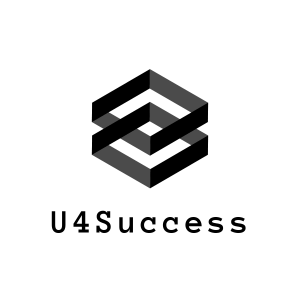
TOK Essay Titles May 2023
Tok essay titles may 2023: what they mean and essay examples.
TOK and TOK Essay a Definitive Guide Series: Part 5
TOK and TOK Essay: a Definitive Guide Series Part 5
Welcome to our Theory of Knowledge (TOK) and TOK Essay a Definitive Guide Series! In this series of articles, you will learn everything there is to know about the IB TOK course, TOK exhibition, and writing a compelling TOK essay. So let’s get started!
In May 2023, International Baccalaureate (IB) Diploma Programme students were presented with a new set of Theory of Knowledge (TOK) Essay titles. These essay titles serve as the foundation for students to explore and analyze knowledge claims, and critically reflect on the nature of knowledge itself. The TOK Essay is an essential component of the IB Diploma Programme, requiring students to demonstrate their understanding of the ways of knowing and areas of knowledge, while engaging in philosophical and critical thinking. The May 2023 TOK Essay titles encompass a wide range of thought-provoking questions that challenge students to investigate various aspects of knowledge, truth, ethics, and the role of perception in shaping our understanding of the world. Let’s look into each May 2023 TOK Essay Title, explore what they mean and what to include in your essay.

May 2023 TOK Essay Titles
Is replicability necessary in the production of knowledge discuss with reference to two areas of knowledge., for artists and natural scientists, which is more important: what can be explained or what cannot be explained discuss with reference to the arts and the natural sciences..
- Does it matter if our acquisition of knowledge happens in “bubbles” where some information and voices are excluded? Discuss with reference to two areas of knowledge.
- Do you agree that it is “astonishing that so little knowledge can give us so much power” (Bertrand Russell)? Discuss with reference to the natural sciences and one other area of knowledge.
Are visual representations always helpful in the communication of knowledge? Discuss with reference to the human sciences and mathematics.
To what extent is the knowledge we produce determined by the methodologies we use discuss with reference to history and one other area of knowledge., understanding the title.
Title 1 of the May 2023 TOK essay prompts explores the concept of “replicability” and its role in assessing the quality of knowledge. It delves into the idea of reproducing knowledge in the same context consistently and questions whether replicability guarantees the validity of knowledge.
The essay examines the field of natural sciences and how replicating experiments often leads to credible results, instilling confidence in the reliability of knowledge. However, it also calls for an evaluation of whether reproducing knowledge in the same manner is essential for knowledge production.
Moreover, the essay considers whether replicability holds the same significance in other areas of knowledge. It explores how replicability can be distinguished from plagiarism, particularly in creative domains such as the arts. It ponders the possibility of replicating an artwork to produce identical pieces and how this affects the knowledge each replicated artwork generates.
Overall, the essay explores the role of replicability in different domains of knowledge and analyzes its implications for the quality and authenticity of knowledge.
Examples of the May 2023 TOK Title 1 Essay
Replicability, or the ability to reproduce results or findings through independent experiments or observations, plays a crucial role in the production of knowledge. It ensures that knowledge is reliable, verifiable, and can withstand scrutiny. In this response, I will discuss the significance of replicability in two areas of knowledge: scientific research and history.
Scientific Research:
In the field of scientific research, replicability is considered fundamental. It is essential for validating scientific claims and theories. When an experiment or study can be replicated by other researchers, it increases confidence in the reliability and accuracy of the findings. Replicability allows for the detection of errors, biases, or anomalies, as well as the potential identification of confounding variables or alternative explanations.
For example, in the field of medicine, drug trials undergo rigorous testing and replication to ensure that the results are consistent across different populations, settings, and timeframes. This replication process helps to establish the effectiveness and safety of a new treatment or drug. Replicability also enables the scientific community to build upon existing knowledge, refine theories, and make advancements in various disciplines.
While history is not a science in the strict sense, replicability still holds significance in historical research. In history, replicability manifests as the ability to verify and cross-reference information from multiple sources. Multiple accounts, primary sources, artifacts, and historical records are examined to corroborate events and narratives. Replicability allows historians to confirm the accuracy and authenticity of historical claims and interpretations.
For instance, when studying a specific historical event like World War II, historians rely on various sources such as diaries, letters, photographs, official documents, and testimonies. By cross-referencing these sources and replicating findings, historians can establish a more comprehensive and reliable understanding of the past. Replicability in historical research helps to mitigate biases, misinformation, and revisionism, ensuring a more accurate representation of historical events.
In both scientific research and historical analysis, replicability serves as a safeguard against biases, errors, and misinterpretations. It enhances the credibility and robustness of knowledge production by subjecting claims and findings to independent scrutiny. Replicability fosters a culture of transparency, accountability, and collaboration within these areas of knowledge, ultimately contributing to the advancement of our understanding of the world.
Title 2 of the May 2023 TOK essay prompts presents a unique twist in its wording. Instead of asking for an explanation of which ideas can or cannot be explained, the essay calls for an evaluation of perspectives on the importance of two types of ideas: those that can be explained and those that cannot.
The essay examines the field of natural sciences, where there is vast potential for research. While natural science may not be able to prove all facts, it can theoretically describe them, highlighting the significance of ideas that can be explained within this domain.
On the other hand, in the realm of the arts, there are contextual artworks, such as historical art, that seek explanations based on evolving traditions. This implies that ideas which cannot be easily explained also hold importance in this creative field.
The essay task focuses on evaluating differing viewpoints regarding the relative importance of ideas that can be explained versus those that cannot be. It encourages an exploration of the value and significance of both types of ideas across different areas of knowledge.
In summary, the essay prompts the evaluation of perspectives on the importance of ideas that can be explained versus those that cannot, drawing examples from the natural sciences and the arts to illustrate the differing contexts in which these ideas hold relevance.
Examples of the May 2023 TOK Title 2 Essay
For artists and natural scientists, the importance of what can be explained versus what cannot be explained can vary based on the specific nature of their disciplines. Let’s examine this distinction in the context of the arts and the natural sciences.
In the realm of the arts, the exploration of what cannot be easily explained often takes precedence. Artists often delve into the subjective, emotional, and abstract aspects of human experience that elude simple explanations. They aim to evoke emotions, provoke thought, and engage the audience on a deeper level.
Artistic creations, such as paintings, sculptures, music, dance, and literature, often seek to express complex ideas, emotions, or perspectives that go beyond the limitations of language or rational comprehension. Artists often tap into their intuition, imagination, and creativity to communicate the ineffable aspects of the human condition. In this context, what cannot be easily explained holds great significance as it allows for the exploration of the mysterious, the ambiguous, and the sublime.
For example, abstract art, poetry, or avant-garde performances often embrace ambiguity and open interpretation. They encourage viewers or audiences to engage with the artwork personally and subjectively, allowing for a range of individual responses and meanings. The elusive and unexplained aspects of art contribute to its richness, diversity, and ability to provoke introspection and emotional resonance.
The Natural Sciences:
In contrast, the natural sciences primarily focus on understanding and explaining the natural world through empirical observations, data analysis, and the formulation of testable theories. In the natural sciences, the emphasis is on what can be explained based on evidence and logical reasoning. Scientists seek to uncover underlying patterns, mechanisms, and causal relationships through systematic investigation and experimentation.
While there are still many phenomena in the natural sciences that are not yet fully explained, the goal is to continually expand our knowledge and provide explanations based on observable evidence. Scientists strive for replicability and the ability to predict and control phenomena through established theories and models. They work towards uncovering the underlying laws and principles that govern the physical, biological, and chemical processes in the natural world.
For instance, in physics, the pursuit of understanding the fundamental laws of the universe and explaining natural phenomena, such as gravity, electromagnetism, and quantum mechanics, relies on developing comprehensive theories that provide explanatory frameworks . The focus is on identifying patterns, making accurate predictions, and providing explanatory power to phenomena.
In summary, for artists, what cannot be explained often takes precedence, allowing for exploration of subjective experiences, emotions, and abstract concepts. In contrast, for natural scientists, explaining phenomena based on empirical evidence and logical reasoning is of primary importance. Both perspectives contribute to our understanding of the world, but their priorities and approaches differ in terms of what they consider significant and valuable.
Does it matter if our acquisition of knowledge happens in “ bubbles ” where some information and voices are excluded? Discuss with reference to two areas of knowledge.
Title 3 of the May 2023 TOK essay prompts presents a fascinating concept of “knowledge bubbles,” referring to isolated environments where certain knowledge ideas persist without much variation or exploration.
In the realm of human sciences, the essay raises the question of whether these knowledge bubbles hinder our ability to take responsibility for exploring new knowledge. It explores how these bubbles can create limitations in our understanding of the world and hinder our progress in generating new ideas.
On one hand, in the natural sciences, knowledge tends to solidify over time, gaining certainty through long-held beliefs and established theories. However, this prompts questions about the importance of acquiring knowledge solely from within a known knowledge zone, where ideas align with the prevailing beliefs of that particular community.
Overall, the essay allows for a wide range of opinions and encourages exploration of the impact of knowledge bubbles on our pursuit of new knowledge. It challenges us to consider whether relying solely on established beliefs limits our ability to engage in critical thinking and explore alternative perspectives.
Examples of the May 2023 TOK Title 3 Essay
The matter of acquiring knowledge within “bubbles,” where certain information and voices are excluded, is a topic of great importance. It raises concerns about the potential limitations, biases, and distortions that can arise when our knowledge is confined to narrow perspectives or echo chambers. Let’s discuss this issue with reference to two areas of knowledge: social sciences and journalism.
Social Sciences:
In the field of social sciences, it is crucial to consider multiple perspectives and voices to gain a comprehensive understanding of human behavior, societies, and cultures. Excluding certain information or voices can result in a skewed and incomplete understanding of complex social phenomena.
For instance, in studying the effects of socioeconomic factors on educational attainment, it is essential to consider diverse perspectives from various socioeconomic backgrounds. Excluding certain voices can lead to an incomplete understanding of the challenges and barriers faced by different communities, potentially perpetuating social inequalities.
Furthermore, social sciences often rely on interdisciplinary approaches and collaborations, drawing insights from sociology, psychology, anthropology, economics, and more. By embracing diverse perspectives and voices, researchers can integrate multiple lenses and address complex issues more effectively.
Journalism:
In journalism, the exclusion of voices and information within “bubbles” poses significant challenges to the integrity and accuracy of news reporting. Journalists play a crucial role in informing the public and holding power to account. When information and voices are excluded, it can lead to biased reporting, misinformation, and a lack of critical analysis.
Diverse voices and perspectives are essential in journalism to provide a comprehensive and accurate portrayal of events and issues. Excluding certain voices can lead to narratives that are one-sided, lacking context, or distorted. It is important for journalists to actively seek out and include diverse sources to provide a more nuanced understanding of the world.
Moreover, journalism serves as a crucial tool for democracy, fostering informed citizenry and facilitating public discourse. When information and voices are excluded, it can hinder the ability of individuals to make informed decisions, contribute to public debates, and hold power accountable.
In summary, the exclusion of information and voices within “bubbles” can have detrimental effects on knowledge acquisition in various areas. In the social sciences, it can lead to incomplete understandings of complex social phenomena and perpetuate inequalities. In journalism, it can result in biased reporting, misinformation, and hinder public discourse. Embracing diverse perspectives and actively seeking out a range of voices is essential to promote a more comprehensive, accurate, and inclusive acquisition of knowledge.
Do you agree that it is “ astonishing that so little knowledge can give us so much power ” (Bertrand Russell)? Discuss with reference to the natural sciences and one other area of knowledge.
Title 4 of the May 2023 TOK essay prompts introduces a humorous aspect, reminiscent of the saying “little knowledge may be dangerous.” The question raises whether one is surprised by the observation that possessing limited knowledge can give individuals a sense of power or authority over that knowledge. It highlights the common phenomenon of individuals with little knowledge becoming trapped in an illusory web, overestimating their own understanding.
In the natural sciences, there can be instances where individuals overestimate their capabilities in asserting knowledge claims. This overconfidence can lead to erroneous conclusions or an inflated sense of expertise.
Similarly, in the human sciences, it is not uncommon for people to become overwhelmed and overrate their own abilities. They may possess a limited understanding of complex concepts and mistakenly believe they have a higher level of expertise than they actually do.
Overall, the essay prompts an examination of the tendency for individuals with limited knowledge to overestimate their command of that knowledge. It explores this phenomenon in both the natural and human sciences, emphasizing the potential dangers and pitfalls of overconfidence in one’s own understanding.
Examples of the May 2023 TOK Title 4 Essay
The statement by Bertrand Russell, “It is astonishing that so little knowledge can give us so much power,” highlights the transformative impact that even a limited understanding can have in certain areas of knowledge. Let’s explore this idea in the context of the natural sciences and technology.
Natural Sciences:
In the natural sciences, even a relatively small amount of knowledge can yield significant advancements and empower us to manipulate the natural world. Throughout history, breakthroughs in scientific understanding have led to remarkable technological innovations and applications.
For example, consider the field of physics. Newton’s laws of motion and universal gravitation, formulated with a relatively limited understanding of the natural world at the time, revolutionized our understanding of mechanics. These principles provided the foundation for the development of numerous technologies, including the construction of bridges, the design of vehicles, and the exploration of space. From the limited knowledge of the laws of motion, we gained the power to build complex structures, travel vast distances, and even send spacecraft beyond our planet.
Similarly, in the field of genetics, the discovery of the structure of DNA by Watson and Crick with their limited knowledge at the time unlocked an unprecedented understanding of the genetic code. This knowledge paved the way for advancements in genetic engineering, gene editing technologies like CRISPR, and the decoding of the human genome. From a limited understanding of the structure of DNA, we gained immense power to manipulate and modify genetic information, potentially revolutionizing fields such as medicine, agriculture, and biotechnology.
Technology:
In the realm of technology, it is astonishing how even a small amount of knowledge can empower us to create innovative tools and systems that have a profound impact on our lives. Advancements in computer science and information technology provide a compelling example.
With a relatively limited understanding of programming languages and computer architecture, we have harnessed the power of computers to transform various aspects of our lives. From simple algorithms and binary logic, we have developed complex software systems, artificial intelligence, and communication networks that enable instant global connectivity. The knowledge required to build these systems may be relatively small compared to the vastness of the universe, but it has given us the power to automate tasks, access vast amounts of information, and revolutionize fields such as healthcare, finance, and entertainment.
However, it is important to note that with great power also comes great responsibility. The potential consequences of wielding such power require ethical considerations and responsible use to ensure that the benefits of knowledge are harnessed for the betterment of society.
In conclusion, the quote by Bertrand Russell captures the idea that even a modest amount of knowledge can yield significant power in certain areas of knowledge, such as the natural sciences and technology. From these limited understandings, we have gained the ability to transform the world around us, develop groundbreaking technologies, and shape the course of human civilization.
Title 5 of the May 2023 TOK essay prompts is likely to be intriguing for visual learners as they may feel a strong personal connection to it. The key word in the title is “always,” which implies that knowledge is consistently produced and received in a unidirectional manner. However, communication itself is a bidirectional concept.
The essay offers an opportunity to delve into areas where statistical data serves a different purpose in its production compared to its interpretation. It raises questions about the reliability of such data, particularly in predictive analysis. The focus is on understanding the distinction between the production of statistical data and the subsequent interpretation of that data, highlighting potential discrepancies and challenges.
Visual learners may particularly resonate with this topic as they can explore the visual representation of data and how it influences the communication and interpretation of knowledge. It encourages an examination of the complexities involved in the production, communication, and interpretation of statistical data.
In summary, the essay title emphasizes the unidirectional nature of knowledge production and reception, while highlighting the bidirectional nature of communication. It prompts an investigation into the different purposes of producing and interpreting statistical data, raising questions about reliability and the role of visual representation in knowledge communication.
Examples of the May 2023 TOK Title 5 Essay
Visual representations can be highly effective in the communication of knowledge in various fields, including the human sciences and mathematics. However, their usefulness may vary depending on the context and the specific nature of the knowledge being conveyed. Let’s explore this topic in relation to the human sciences and mathematics.
Human Sciences:
In the human sciences, which encompass disciplines such as psychology, sociology, anthropology, and linguistics, visual representations can play a valuable role in enhancing understanding and communication.
Visual representations, such as charts, graphs, diagrams, and maps, can help convey complex data, patterns, and relationships in a concise and accessible manner. For instance, in sociology, a graph or chart can visually represent statistical data on social trends or demographic patterns, making it easier to analyze and interpret the information.
Furthermore, visual representations can be particularly helpful in presenting qualitative data. In anthropology, for example, photographs, videos, or illustrations can provide visual documentation of cultural practices, artifacts, or archaeological sites, aiding in the understanding of cultural diversity and historical contexts.
However, it is important to note that visual representations in the human sciences should be used thoughtfully and critically. They should be accompanied by appropriate contextual information and explanations to ensure accurate interpretation. Visuals can simplify complex phenomena, but they may also oversimplify or distort information if not properly contextualized.
Mathematics:
Visual representations are widely used and highly beneficial in the field of mathematics. They often serve as powerful tools for conceptual understanding, problem-solving, and communication of mathematical ideas.
Diagrams, graphs, and geometric figures are frequently employed to illustrate mathematical concepts, relationships, and proofs. Visual representations in mathematics can help students and researchers visualize abstract ideas, observe patterns, and make connections between different mathematical principles.
For example, in geometry, visualizing geometric shapes and their transformations through diagrams can aid in understanding properties, congruence, and symmetry. Graphs and charts are extensively used in representing numerical data, functions, and mathematical models, enabling a visual understanding of trends, variations, and mathematical relationships.
However, it is worth noting that while visual representations are valuable in mathematics, they are not a substitute for rigorous mathematical reasoning and proof. Visuals can provide intuitive insights and aid in conceptual understanding, but formal mathematical proofs often require precise logical arguments and symbolic representations.
In summary, visual representations can be highly beneficial in the communication of knowledge in both the human sciences and mathematics. They can help simplify complex information, convey patterns and relationships, and enhance understanding. However, it is important to use visuals critically and in conjunction with appropriate context, explanations, and rigorous reasoning to ensure accurate interpretation and avoid oversimplification or distortion of knowledge.
Title 6 of the May 2023 TOK essay prompts brings to mind the methods and tools used within the TOK knowledge framework. The essay focuses on the extent to which observations collected and evaluated through methodologies impact the nature of newly produced knowledge.
The central question revolves around the influence of different methodologies on the production of new knowledge. It explores whether the appropriateness of research methodologies affects the accuracy and reliability of the knowledge that is generated. This invites reflection on the role of methodologies in shaping the outcomes of knowledge production.
In the context of history, the essay acknowledges the presence of evidence from primary resources, which plays a crucial role in interpreting the past. This highlights how different research methodologies can lead to varying interpretations and understandings of historical events and phenomena.
Similarly, the essay recognizes the significance of empiricism in the natural sciences. It prompts an investigation into the nature of knowledge produced in this field through the use of empirical methods, emphasizing the importance of observation and experimentation.
Overall, the essay encourages an exploration of the impact of methodologies on the nature and accuracy of knowledge production. It calls for a critical examination of how different research methods shape our understanding of historical events and scientific phenomena.
Examples of the May 2023 TOK Title 6 Essay
The methodologies we employ in the production of knowledge significantly influence the nature, scope, and reliability of the knowledge we generate. Different methodologies shape the way information is gathered, analyzed, and interpreted, ultimately shaping the conclusions and insights we arrive at. Let’s examine the extent to which methodologies influence knowledge production in the context of history and natural sciences.
In the field of history, methodologies play a crucial role in shaping the knowledge we produce. Historians rely on various methodologies to examine and interpret past events, individuals, and societies. The choice of methodology can significantly impact the narrative and understanding of historical phenomena.
For instance, the use of archival research and primary sources is a fundamental methodology in history. By analyzing letters, diaries, official documents, and other firsthand accounts, historians gain insights into the perspectives, motivations, and actions of historical actors. The selection and interpretation of these primary sources can shape the historical narrative and influence the conclusions drawn.
Another example is the impact of historiographical methodologies. Different historiographical approaches, such as social history, cultural history, or Marxist historiography, emphasize different aspects of historical analysis and interpretation. These methodologies influence the questions asked, the sources examined, and the theories employed, thereby shaping the knowledge produced.
The methodology of historical research also includes critical analysis, source criticism, and triangulation of evidence. These methodologies help historians evaluate the reliability and biases of sources, ensuring a more rigorous and accurate understanding of the past.
In the natural sciences, methodologies strongly influence the knowledge we produce by providing frameworks for experimentation, observation, and analysis. Scientific methodologies aim to ensure objectivity, reproducibility, and reliability in the acquisition of knowledge.
For example, the scientific method, a foundational methodology in the natural sciences, involves making observations, formulating hypotheses, conducting experiments, and analyzing data. This systematic approach helps scientists test and refine theories, establish causal relationships, and draw reliable conclusions. The scientific method provides a framework that promotes transparency, accountability, and the accumulation of knowledge through peer review and replication.
Furthermore, specific methodologies within different scientific disciplines shape the nature of knowledge produced. For instance, in molecular biology, methodologies such as DNA sequencing, protein crystallography, and microscopy enable scientists to study and understand the structure and function of biological molecules. These methodologies generate detailed and precise knowledge about the molecular mechanisms of life.
It is important to note that while methodologies in the natural sciences provide a systematic approach to knowledge production, they are not entirely deterministic. Scientific creativity, intuition, and the ability to ask insightful questions also influence the direction and breakthroughs in scientific knowledge.
In summary, methodologies significantly shape the knowledge produced in both history and the natural sciences. They guide the gathering, analysis, and interpretation of evidence, influencing the narratives, theories, and conclusions drawn. Understanding and critically evaluating the methodologies employed is essential for a robust and comprehensive understanding of the knowledge generated in these areas.
Please Note
It is improtant to note that the above provided essay examples are only meant to give an idea of what to include in your essay and not to show you how to write a good TOK essay. These texts are rather superficial without personal life examples, opinions or personal reflections. That is why, if you are looking for examples of a 7/7 TOK essay, check out other sources or our comprehensive guide to writing a successful TOK Essay .
Engaging in the TOK Essay not only allows students to demonstrate their academic prowess but also empowers them to become active seekers of knowledge. By delving into the essay titles and engaging with TOK concepts, students can cultivate a deeper awareness of the biases, assumptions, and limitations that influence our understanding of the world. They can challenge preconceived notions, explore the ethical implications of knowledge claims, and unravel the complexities of truth and certainty.
Furthermore, embracing the full potential of TOK within the school environment can bring immense benefits. Students who actively participate in TOK classes and seize the opportunity to write the TOK Essay can develop essential skills that extend far beyond the boundaries of their academic journey. These skills, such as critical thinking, open-mindedness, and the ability to evaluate and analyze information, will serve them well in their future pursuits, be it in higher education, careers, or personal growth.
Therefore, I encourage all students to embrace the May 2023 TOK Essay titles and approach them with curiosity and enthusiasm. Take advantage of the unique chance to delve into the world of TOK, to challenge assumptions, to question prevailing narratives, and to construct well-reasoned arguments. Engaging in TOK fosters a lifelong love for learning, equipping students with the tools to navigate the complexities of knowledge and empowering them to become informed, responsible, and thoughtful global citizens. So, seize the opportunity, embark on this intellectual adventure, and let TOK inspire you to expand the boundaries of your understanding.
Frequently asked questions (FAQs)
What is the purpose of the TOK Essay titles?
The TOK Essay titles for May 2023 serve as prompts for students to critically analyze and explore knowledge claims within specific contexts. They encourage students to engage with philosophical questions and apply TOK concepts to develop their understanding of the nature of knowledge.
How are the TOK Essay titles selected?
The TOK Essay titles are carefully crafted by a panel of IB experts and educators. They aim to cover a wide range of themes and concepts related to knowledge, incorporating various areas of knowledge and ways of knowing.
Can students choose any title to write their TOK Essay?
No, students are required to choose one essay title from the given list of titles. They must carefully consider each title, evaluate their level of understanding and interest, and select the one that aligns best with their knowledge and experiences.
Can students use real-life examples in their TOK Essays?
Yes, incorporating real-life examples is highly encouraged in TOK Essays. These examples help to ground abstract concepts in concrete situations, enhancing the students’ analysis and application of TOK principles.
How should students approach the TOK Essay titles?
Students should approach the TOK Essay titles by first thoroughly understanding the key terms and concepts within the chosen title. They should critically analyze the question, consider multiple perspectives, and explore various knowledge claims. It is essential to use TOK-specific terminology, engage in critical thinking, and present a well-structured argument supported by evidence and examples.

About the Author
Anzhelika is a PhD candidate in Genetics and a marketing consultant at U4Success from Vienna, Austria. She leads our website and social media content strategy.
Share this:
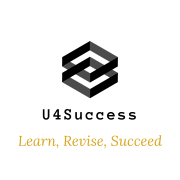
Our Policies
- Terms of Service
- Terms and Conditions
- Cookie Policy (EU)
- Privacy Policy

Discover more from U4Success | IB tutoring
Subscribe now to keep reading and get access to the full archive.
Type your email…
Continue reading

Let’s Unpack the November 2023 TOK Essay Titles Together!

As someone who’s been through the IB program and written more TOK essays than I can count, I’m super excited to dive into the TOK essay titles for November 2023 with you.
I’m hoping my insights will give you a fresh perspective and help you craft theory of knowledge essays that really stand out. So, are you ready? Let’s get started!
List of IB TOK Essay Prompts November 2023
November prompt 1 – are facts alone enough to prove a claim discuss with reference to any two areas of knowledge..
This question invites us to explore the nature of facts and their role in validating claims. Consider the AOKs of Natural Sciences and Human Sciences. In Natural Sciences, facts are often seen as objective and reliable, but they are also subject to interpretation and can change as new evidence emerges. In Human Sciences, facts can be influenced by personal and cultural perspectives. For WOKs, consider Reason and Language. How do we use reason to interpret facts? How does language influence our understanding of facts? For a real-life situation (RLS), you could discuss a scientific theory that was once accepted as fact but has since been disproven.
November Prompt 2 – If “the mathematician’s patterns, like the painter’s and the poet’s, must be beautiful” (G.H. Hardy), how might this impact the production of knowledge? Discuss with reference to mathematics and the arts.
This prompt is about the intersection of aesthetics and knowledge. Consider the AOKs of Mathematics and The Arts. How does the concept of beauty apply in these areas? For WOKs, consider Intuition and Emotion. How do these ways of knowing contribute to our perception of beauty? For an RLS, you could discuss how the beauty of the Fibonacci sequence has inspired research in various fields.
November Prompt 3 – In the acquisition of knowledge, is following experts unquestioningly as dangerous as ignoring them completely? Discuss with reference to the human sciences and one other area of knowledge.
This question is about the role of authority in knowledge acquisition. Consider the AOKs of Human Sciences and History. How does the authority of experts influence our understanding in these areas? For WOKs, consider Memory and Faith. How do we rely on these ways of knowing when dealing with experts? For an RLS, you could discuss a historical event where the unquestioning acceptance of an expert’s opinion led to negative consequences..
November Prompt 4 – Is it problematic that knowledge is so often shaped by the values of those who produce it? Discuss with reference to any two areas of knowledge .
This question is about the influence of values on knowledge. Consider the AOKs of History and Human Sciences. How do the values of historians or social scientists shape the knowledge they produce? For WOKs, consider Reason and Emotion. How do these ways of knowing interact with our values? For an RLS, you could discuss a historical narrative that has been influenced by the historian’s values.
November Prompt 5 – Is it always the case that “the world isn’t just the way it is, it is how we understand it – and in understanding something, we bring something to it”? Discuss with reference to history and the natural sciences.
This prompt is about the role of interpretation in knowledge acquisition. Consider the AOKs of History and Natural Sciences. How does our interpretation shape our understanding in these areas? For WOKs, consider Imagination and Perception. How do these ways of knowing contribute to our interpretation? For an RLS, you could discuss a historical event and how different interpretations can lead to different understandings.
November Prompt 6 – Faced with a vast amount of information, how do we select what is significant for the acquisition of knowledge? Discuss with reference to the natural sciences and one other area of knowledge.
This question is about the process of selecting information. Consider the AOKs of Natural Sciences and Human Sciences. How do we select significant information in these areas? For WOKs, consider Reason and Memory. How do these ways of knowing guide our selection process? For an RLS, you could discuss the process of conducting a literature review for a research project.
Remember, these are just suggestions to get you started. Feel free to explore other AOKs, WOKs, and RLSs that resonate with you. And if you need any help along the way, don’t hesitate to reach out to us at IB Writing Service . We’re here to support you in your TOK essay writing process.
Select Nov 2023 TOK Title Wisely
So, there you have it, folks! The November 2023 TOK essay prompts are a goldmine of ideas waiting to be explored. As you dive into these prompts, remember to think critically, question assumptions, and bring your unique perspective to the table.
WE CAN HELP YOU WRITE A TOK ESSAY ON ANY TOPIC
Calculate the Quote for Custom IB TOK Essay
Now, I know that writing a TOK essay can be a bit daunting, especially when you’re juggling other IB assignments. But guess what? You’re not alone in this.
We at IB Writing Service are here to help. We’re not just experts in writing IB IA and Extended Essays ; we also specialize in helping IB students with other assignments, including TOK essays.
So, if you need a helping hand, don’t hesitate to reach out to us and buy a TOK essay online from IB experts. We’re here to make your IB writing process a little less stressful and a lot more successful. Let’s do this together!
Nora Spinster
Nora Spinster is a multi-talented individual who is an educator, lawyer, youth, expert IB tutor, education activist, and language and writing enthusiast. Nora has a wealth of experience in copywriting, having worked with various organizations and businesses to craft compelling and effective copy. Nora has published articles on young learners and teenage students in the International House Journal and occasionally posts on ibwritingservice.com educational blog
- Nora Spinster https://ibwritingservice.com/blog/author/noraspinster/ IB English A Extended Essay Topics
- Nora Spinster https://ibwritingservice.com/blog/author/noraspinster/ IB Extended Essay Topics: Global Politics
- Nora Spinster https://ibwritingservice.com/blog/author/noraspinster/ IB World Studies Extended Essay Ideas
- Nora Spinster https://ibwritingservice.com/blog/author/noraspinster/ IB Extended Essay Topics: Geography
Get hot offers and discounts for your IB Assignments

Our writing solutions cater to all disciplines within the IB program, and we specialize in crafting academic papers for students of all levels. We follow the IB criteria.
Adhering strictly to the rigorous standards set by the IB, we deploy a methodical approach to our writing process. This ensures that every piece of content we generate not only meets but exceeds the expectations set within the program.
Contact us:
Latest Articles:

IB English A Extended Essay Topics
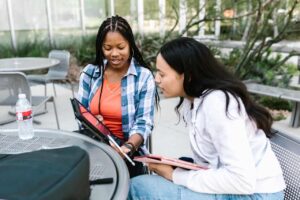
IB Extended Essay Topics: Global Politics

IB World Studies Extended Essay Ideas
Our services:.
- Buy Internal Assessment
- Buy Math IA
- Buy Extended Essay
- Buy TOK Essay
- Buy TOK Exhibition
IBWritingService.com is an independent academic writing aid with no official ties to the International Baccalaureate Organization (IBO). Our use of “IB” in the domain and title is purely for identification, and we neither claim nor imply any endorsement or partnership with the IBO. Our services aim to support students’ educational needs without violating IBO policies. Trademarks mentioned are property of their owners and do not suggest affiliations. By using our services, you acknowledge our non-affiliation with the IBO and that we’re not a substitute for IBO requirements. We deny any liability for use of our services in relation to the IBO.
ALL PAPERS WRITTEN BY OUR EXPERTS AS PART OF THIS WRITING SERVICE ARE FOR REFERENCE PURPOSES ONLY. WHEN USING CONTENT PURCHASED FROM THIS WEBSITE, IT MUST BE PROPERLY REFERENCED.
- Terms & Conditions
- Revision Policy
- Privacy Policy
- Refund Policy
- Cookie Policy
© 2023. All Rights Reserved.
November 2023 TOK Essay Titles Explained with Examples
What happened to this post? HackIB has been acquired by MyIBTutor . All content is now available on the MyIBTutor Blog with more exciting IB content to come! Click here to see it for yourself!
The prescribed titles for the November 2023 TOK Essay has been released! Here are all the titles with detailed explanation and examples to get you started:
- Are facts alone enough to prove a claim? Discuss with reference to any two areas of knowledge.
- If “the mathematician’s patterns, like the painter’s and the poet’s, must be beautiful” (G.H. Hardy), how might this impact the production of knowledge? Discuss with reference to mathematics and the arts.
- In the acquisition of knowledge, is following experts unquestioningly as dangerous as ignoring them completely? Discuss with reference to the human sciences and one other area of knowledge.
- Is it problematic that knowledge is so often shaped by the values of those who produce it? Discuss with reference to any two areas of knowledge.
- Is it always the case that “the world isn’t just the way I is, it is how we understand it – and in understanding something, we bring something to it” (adapted from Life of Pi by Yann Martel)? Discuss with reference to history and the natural sciences.
- Faced with a vast amount of information, how do we select what is significant for the acquisition of knowledge? Discuss with reference to the natural sciences and one other area of knowledge.
Below are the explanations. If you need help with TOK concepts and how to write a good essay, check out the resources in the TOK subject page!
To see the titles explained, read the full article for free on MyIBTutor .
Share this:, one response to “november 2023 tok essay titles explained with examples”.
Hi Daniel, I really appreciate your work. You are a genius!
Leave a comment Cancel reply

- Already have a WordPress.com account? Log in now.
- Subscribe Subscribed
- Copy shortlink
- Report this content
- View post in Reader
- Manage subscriptions
- Collapse this bar

- May 20, 2023
Unpacking the 2023 November TOK Titles: A Comprehensive IB Solved Guide
The November 2023 titles for the IB Theory of Knowledge Essay have been released! Let's face it – the TOK essay can be very intimidating. With so many topics to choose from and so many ideas bouncing around, it can be hard to know where to begin. That's where we come in. In this post, we'll take a closer look at each of the titles and give you some tips for approaching them.
General Tips to Unpacking a Title
Whenever we approach a prompt, we always want to think in terms of perspectives and counter-perspectives (for those who are familiar with the old syllabus, these were previously known as claims and counterclaims). This allows us to structure the essay within the two selected AOKs, creating four paragraphs directly addressing the title and with consideration of varying perspectives on the title. While the final conclusion that we draw will likely lie somewhere in the middle, or argue that each perspective is more/less correct in different circumstances, it is often helpful to think of the two extremes first before trying to come up with a more nuanced conclusion.
So let’s get into unpacking them – here is everything you need to know about each of the November 2023 TOK Essay titles:
Title 1: Are facts alone enough to prove a claim? Discuss with reference to any two areas of knowledge.
Recommended AOKs: Natural Sciences, Human Sciences, History
For this title, the perspective and counter-perspective are straightforward – either facts alone are enough to prove a claim, or they are not.
Some ideas to think about which support the first perspective:
Facts are objective – By providing objective evidence for a claim, facts can be a highly reliable form of evidence to support claims made by knowers. This objectivity allows for the same claim to be proven across time, in different cultures and by unique knowers.
Facts allow for conclusions to be drawn through logic – By combining an array of established facts, deductive reasoning can be utilised to draw conclusions about the world and produce new knowledge. Often facts form the premises from which knowledge claims can be made, allowing a knower to prove a claim by first establishing a series of interconnected facts.
Facts can be tested – This is particularly important for science-based AOKs which rely upon falsification as an important method of producing new knowledge. Since facts can be tested, the veracity of a knower’s claim is always available to be disproven by empirical evidence.
For your counter-perspective, you have a far greater degree of freedom in your discussion. This is where you can really differentiate your essay from others, as it is your job to decide which other important elements beyond facts alone may be necessary to prove a claim. Some ideas from us:
Opinions – Whilst opinions lack the objectivity of facts, they are often important to proving knowledge claims, as these claims are often unable to be proven by facts alone. Rather inferences must be drawn to create meaning from facts. This can be illustrated through a very simple claim: Imagine for instance that we were trying to prove the claim that Germany were responsible for World War I. Whilst we could drawn upon facts, such as the fact that they issued a blank cheque to Austria-Hungary or the fact that they invaded Belgium in August 1914, ultimately we rely upon the opinions of historians in making a judgement on how important this was in the context of the war.
Personal Experience – Whilst personal experiences only provide anecdotal evidence and cannot allow us to draw broader conclusions, they may be necessary to prove a claim which involves emotion or personal beliefs.
Creativity – Creative thinking may be necessary to prove claims, particularly in the sciences, where facts alone are insufficient. For instance, scientific theories, whilst based in fact, are often dependent on analogies, comparisons and metaphor to explain abstract concepts for which there may not yet be any measurable or empirical evidence.
Title 2: If “the mathematician’s patterns, like the painter’s and the poet’s, must be beautiful” (G.H. Hardy), how might this impact the production of knowledge? Discuss with reference to mathematics and the arts.
This title is far more intricate than the others, relying heavily upon the definitions you impose upon key terms. The concept of the “mathematician’s patterns” and the term “beautiful” must be defined in the opening of the essay, as this will restrict the scope of your knowledge exploration. The way in which we would recommend splitting up this topic would be to first discuss the impact upon the production of knowledge in mathematics and then within the Arts. Some ideas for the perspectives and counter-perspectives which you may explore include:
Beauty in Mathematics – You will want to consider the importance of beauty in Mathematics. This is not referring to beauty in the traditional sense but perhaps considering other ways in which Mathematics may be considered beautiful such as in its way of transforming complex real-world problems into simple symbols which can be solved. This can impact the production of knowledge as mathematicians may choose to ignore solutions which are complex and rough – in other words, ‘mathematically ugly’.
Beauty in Art – In discussing this AOK, you may consider the debate between aestheticism and purpose within the Arts – In other words, is Art merely supposed to ‘look good’ or does it have a greater purpose, and how does this relate to the production of knowledge in and through the Arts.
Title 3: In the acquisition of knowledge, is following experts unquestioningly as dangerous as ignoring them completely? Discuss with reference to the human sciences and one other area of knowledge.
Recommended AOKs: Human Sciences and Natural Sciences/History/Math
This title presents a very contemporary issue which is the questioning of experts and trust in the knowledge produced by experts. Nonetheless, there is a clear perspective and counter-perspective presented by this title – it is either more dangerous to follow experts unquestioningly or more dangerous to ignore them completely.
Some ideas relevant to the first perspective:
Evidence over Experts – By following experts unquestioningly, rather than examining the quality of their evidence and research methods, we fall into the trap of making arguments from authority without confirming that their conclusions are actually correct.
Subjective Experiences – While experts are helpful in drawing general conclusions/findings about the world, they do not account for subjective, individual experiences. This is particularly relevant in the Human Sciences, as theories and claims of human behaviour may not apply to all people due to the uniqueness of humans.
Lack of Progress – It is only by questioning established paradigms and claims made by existing experts that we are able to progress and acquire new knowledge. If all experts are followed unquestioningly, there can be no overhaul of existing knowledge when necessary.
Some ideas relevant to the counter-perspective:
Established Research Systems – Experts are trained in effective research methodologies and have systems to maximise the reliability of the claims they make. By ignoring experts, we are instead relying upon knowledge of laypeople whose claims have not been rigorously assessed for their veracity.
Manipulation and Logical Fallacies – By ignoring the claims of experts and instead acquiring knowledge through prominent figures such as celebrities and the media, we expose ourselves to manipulation and the array of logical fallacies employed by these individuals who have their own agenda beyond the dissemination of knowledge.
Knowledge Framework – Experts develop knowledge frameworks which can guide the production of new knowledge. By ignoring experts, we are often left to deal with problems on a case-by-case basis which can lead to a lack of consistency and structure within the knowledge which is acquired.
Title 4: Is it problematic that knowledge is so often shaped by the values of those who produce it? Discuss with reference to any two areas of knowledge.
Recommended AOKs: History, Arts, Human Sciences
This title has a focus on context and values, integral elements of the knowledge framework within the new syllabus. It also has two clear perspectives to be explored – the claim that it is problematic or the claim that it is not, keeping in mind that across both perspectives, it must be specified how knowledge is shaped by individual values.
Some ideas for the first perspective:
Bias – The shaping of knowledge by one’s individual values can create bias which may impede the reliability of knowledge produced through the lens of these values.
Subjectivity – If subjective beliefs founded in one’s values are imported into the production of knowledge which should be based on facts and evidence, this can be problematic for this knowledge.
Lack of Diversity/One-Sided Knowledge – When entire banks of knowledge are produced by individuals from the same background, culture, beliefs or school of thought, this can lead to the omission of other perspectives on an issue, which can limit the knowledge which is produced.
Individual Perspective are Important – It is often important for a knower to incorporate their own personal perspective in the production of knowledge as this is ultimately the only way in which interpretations and opinions beyond mere facts can be drawn.
Knowledge about the Knower – We can often learn more about a knower, their values and the social norms of their time when evaluating knowledge claims which are shaped by individual values, providing a second layer of ‘knowledge within knowledge’.
Specific Knowledge – Whilst not broadly applicable to people or contexts with different values, knowledge produced by those with particular individual values can be more specific and applicable to knowers within the same value system. This form of ‘insider knowledge’ may be shaped by the personal experiences of an individual, which is an asset to the production of knowledge rather than a hinderance.
Title 5: Is it always the case that “the world isn’t just the way it is, it is how we understand it – and in understanding something, we bring something to it” (adapted from Life of Pi by Yann Martel)? Discuss with reference to history and the natural sciences.
This title touches upon the debate between objective and relativistic views of knowledge and the world. The phrase ‘is it always the case’ allows us to derive two perspectives to explore – it either is always the case or it is not. The first perspective requires arguments which explain why this may always be the case, whereas the second only requires you to provide some exceptions/circumstances in which this would not be the case.
Interpretation creates Meaning – It may be argued that all elements of the world must be interpreted and doing so involves the unique lens of each individual knower. In this way, what we bring to the production of knowledge is our own distinct interpretation of the world around us.
Questioning creates Meaning – We could also consider how the questions which knowers ask are unique and based upon our own individual understanding of the world. This means that something new is created each time a new knower attempts to understand the world, as the questions asked and curiosity of each individual provides a distinct approach to knowledge.
Some ideas for the counter-perspective:
Objectivity Exists – It may be argued that there are some elements of the world which are fixed, unquestionable and objective. These components of knowledge are not dependent upon the interpretation of the individual, as there should be objective standards from which everyone should draw the same conclusion.
Repeatability – Particularly in the Natural Sciences, there are some elements of knowledge which are repeatable and not reliant upon the interpretation of the individual knower. This concept of repeatability is a foundational tenet of the sciences and the production of new knowledge of the world around us.
Title 6: Faced with a vast amount of information, how do we select what is significant for the acquisition of knowledge? Discuss with reference to the natural sciences and one other area of knowledge.
Recommended AOKs: Natural Sciences and Human Sciences/History/Arts
This title questions the way in which we determine whether a piece of information is significant for knowledge. Since this is a ‘how’ question, there are many perspectives which can be explored, rather than a clear binary of perspectives. Some ideas from us:
Selection through Merit – This concept is particularly relevant to the Natural Sciences, as the theories which are ultimately deemed as significant are those which are not falsified. This merit-based approach pits scientific theories against each other to determine which are significant for the acquisition of knowledge.
Selection through Structure and Processes – By establishing set systems and procedures for filtering the vast amount of information available within an AOK, we can make selections as to which knowledge is significant.
Selection through Applicability – When judging what is significant for the acquisition of knowledge, a knower may have to consider the vast amount of information and decipher which piece of information is most applicable to their context, values or specific circumstances.
So there you have it! By now, you should have a better idea about which TOK essay title stands out the most to you and maybe even a few ideas about what to write. But where do you begin? Don't worry, we understand that writing a Theory of Knowledge essay can be a daunting task, but with the help of our expert IB tutors, you'll be on your way to success in no time. Plus, with online IB tutoring available, you can get the help you need from anywhere in the world. Don't let the TOK essay stress you out – contact us today to learn more about our IB tutoring services and how we can help you succeed in your IB studies.
IB Solved: Achieve Your IB Dreams and Secure Your Future!
- Internal Assessment Guides
Recent Posts
The Secrets to Success in the Theory of Knowledge (TOK) Essay
November 2023 TOK Essay Prompts Explained + SAMPLES

Table of contents
- Writing Metier
The TOK essay prescribed titles for November 2023 are finally out. Since many students struggle with TOK essays, it’s quite good news that IB students have a lot of time to check those TOK prompts.
No more general words, and dry theory, I’m sharing a list of the TOK titles. I will start with a general list and move further to detailed explanations of each and give you examples. This can help you understand which one you will go for.
Moreover, I believe this can help you get started so that you know what exactly is required of you to work.
November 2023 ToK essay titles list
- Are facts alone enough to prove a claim? Discuss with reference to any two areas of knowledge.
- If “the mathematician’s patterns, like the painter’s and the poet’s, must be beautiful” (G.H. Hardy), how might this impact the production of knowledge? Discuss with reference to mathematics and the arts.
- In the acquisition of knowledge, is following experts unquestioningly as dangerous as ignoring them completely? Discuss with reference to the human sciences and one other area of knowledge.
- Is it problematic that knowledge is so often shaped by the values of those who produce it? Discuss with reference to any two areas of knowledge.
- Is it always the case that “the world isn’t just the way I is, it is how we understand it – and in understanding something, we bring something to it” (adapted from Life of Pi by Yann Martel)? Discuss with reference to history and the natural sciences.
- Faced with a vast amount of information, how do we select what is significant for the acquisition of knowledge? Discuss with reference to the natural sciences and one other area of knowledge.

If you need assistance with your IB ToK essay , press on the picture above and order your paper. Now let’s move to the explanation part.
Title 1: Are facts alone enough to prove a claim? Discuss with reference to any two areas of knowledge.
This seems to be one of the easiest prompts to work on. But in some cases, when things seem too simple, there is a lot that has to go behind that. The keyword in this case is ‘facts.’ The title asks if facts alone are enough to help prove a claim. Another word that also needs to be focused on is ‘alone.’ The idea is to explore if only facts can help you prove a claim or if there are other factors that are needed as well.
A lot of us think that we know what ‘facts’ stand for. In some fields of interest, like math, it is very easy to chalk out what facts are. Say one plus one is two, is a fact in mathematics. But how does one decide what facts are in areas of knowledge like arts and human sciences?
These areas of knowledge are subjective in nature, which means that it can be very hard to differentiate facts in these areas of knowledge. Every area of knowledge that we talk about has a different way of classifying facts.
For example, when we talk about math, we can see that the Pythagorean theorem is based on hard facts, where we talk about how the summation of the square of the base and the perpendicular equals to the sum of the hypotenuse. So we can see that while facts are indeed sufficient in some areas of knowledge , there is indeed more probing needed in other areas of knowledge to help understand things better.
Sample of November 2023 TOK Essay Title 1
Below you can find an example of the November 2023 TOK essay sample on Prompt 1: Are facts alone enough to prove a claim?

To understand this better, it is highly advised that you also go through the different stages of knowledge that exist to help you understand how knowledge is produced here. Does it come solely from facts, or do you also need other types of evidence to help you reach a reasonable conclusion about things?
Title 2: If “the mathematician’s patterns, like the painter’s and the poet’s, must be beautiful” (G.H. Hardy), how might this impact the production of knowledge? Discuss with reference to mathematics and the arts.
This title is very specific. Actually, I’m finding it super confusing and I guess it will be one of the less-selected November 2023 TOK prompts. Agree? Leave your comments below 😉
It is one that talks about the importance of math and how contrary to popular belief, it shares characteristics that are very similar to arts. Many a time, you must have heard that math is a very creative discipline on the whole. The idea behind this concept is that while the subject is highly objective, it does take into account many different factors, and all of these factors are ones that need to be taken into consideration when we talk about this.
One interesting example that we can see here is the concept of fractals. If you read up more about this, then you will find out that this has a lot to do with the artistic representation of mathematics. This raises a very valid question, which is whether art has only to do with how beautiful something is or is there more to it as well.
On the contrary, we can also see that there is a lot of evidence that shows that art is not all about being pretty. There is a lot more to it as well. An example can be seen in terms of the paintings and photographs that depict famous wars that happened in the world. While these aren’t pretty pictures, they are pretty much valid and prevalent, and they really help us understand more about different situations in terms of what we think or believe about them.
So the idea is to explore that does mathematics really have any value is the knowledge is produced but does not add any value? So if you go for this prompt, then you have to dispute the notion of this quote, giving your own two cents to the situation to actually explore what this is all about and how you can work your way toward things in the best possible way.
Title 3: In the acquisition of knowledge, is following experts unquestioningly as dangerous as ignoring them completely? Discuss with reference to the human sciences and one other area of knowledge.
Many students would find this title very appealing. The idea here is to explore to what extent exactly can we trust experts in any field to give us information about things so that we can base our behavior on them. The best way we can look at this is with the help of the Coronavirus pandemic that took the world over by storm.
Health experts told us that we have to get ourselves vaccinated and stay at home for our own safety and the safety of our loved ones. We did exactly so because we realized that this was the best thing to do for people because we trust experts in terms of the knowledge that they have and the advice that they give us about things.
But what is also important to note here is that experts are not always right. They can also go wrong based on what they think and also have it in them to make mistakes. So this raises a very important question, which is what makes an expert?
So the idea is to explore this in a lot of detail. It would be very interesting to explore this with reference to human sciences, because the nature of the subject is highly subjective, which means that it can help understand what all it constitutes. You can explore this better by looking at what economists have to say about different situations and how that seems to be wise or not.
This is a very interesting prompt if you choose to go about it wisely and have sound examples to support your viewpoint about things.
Title 4: Is it problematic that knowledge is so often shaped by the values of those who produce it? Discuss with reference to any two areas of knowledge.
This is a very interesting prompt to work on if you take into account the fact that knowledge is produced according to the values of producers. We need to work toward understanding what the main problem is and how knowledge is influenced by different values.
Let’s look at this with the example of slavery. There was a point in time when people didn’t see anything wrong with slavery. They knew that slavery is prevalent and at that time, it was also very common to have slaves. But if we look at how problematic this is today, then you can see that no one takes into account slavery today. In fact, it is looked upon as something that is extremely bad.
So what we can see here is that the knowledge that we have is greatly influenced by different thought processes that make us understand things a certain way. The value system that we rely on here is something very important that we have to take into account if we wish to work a certain way.
At the end of the day, the knowledge that you have is dependent on what all you have learned so far and what this has taught you. Your lens might become outdated in the future, but the idea is to help you understand all of this in a much better way. An accurate depiction of things can only happen when you take all of that into account and try to understand things for the better. For some areas of knowledge, the issue of values is not very prominent, while for others, that is not the case.
So it depends entirely on what you choose to work with and how you think that affects the way that you think and work toward things.
Title 5: Is it always the case that “the world isn’t just the way it is, it is how we understand it – and in understanding something, we bring something to it” (adapted from Life of Pi by Yann Martel)? Discuss with reference to history and the natural sciences.
While this prompt may seem to be a little complicated at first, it is not really that hard to understand. In simple words, you are expected to work toward bringing your own perspective and interpretation of knowledge. It asks you how you understand things and how your interpretation of things makes you add value to the world. The idea here is that all of us have our own thoughts and ideas about things. The knowledge that we acquire is very different, and our value systems are very different as well. So this is something that we have to explore and try to understand in all ways. There is also a very wide spectrum that makes you understand what it means to bring something to the things that you learn.
With some areas of knowledge, this can be very easy to explain. Say if you talk about art, you can see how artists have their own thought processes when they paint a picture. Even if we talk about an abstract painting, we can see that there is a lot that goes behind all of that, and the main reason for that is that they have a specific thought process that they follow. But how we interpret that painting depends entirely on what our lookout toward things is.
So this is what we need to understand very well. So basically, how well you explore this prompt depends on the type of examples that you come through with and what all you help explain in the best way. So this is something that is very important and is something that you need to pay a lot of attention to, when working.
Title 6: Faced with a vast amount of information, how do we select what is significant for the acquisition of knowledge? Discuss with reference to the natural sciences and one other area of knowledge.
This title basically talks about big data and how there is so much information in the world that we actually find very hard to understand. You might have experienced a lot of this in your entire student life. When there is too much that you have to understand and study, it becomes really hard for you to retain all of that.
So the idea is to understand what information you will actually understand and retain, and what you will not. The idea is to know that some information is more valuable than others, so you have to be very mindful about what you think and do in this situation.
Similarly, in the real work, there is a lot of information that we have in front of us. It depends entirely on us what we choose to pick out as more important, depending on what our world view is and what we think is important for the acquisition of knowledge. Search engines have also given us access to so much information that it actually becomes very hard for us to pick and choose what we want to pay the most attention to.
TOK Essay Title 6 Example
Below you will find a link to the November 2023 TOK essay prompt 6 – Faced with a vast amount of information, how do we select what is significant for the acquisition of knowledge?

When we choose some knowledge, and we miss out on some other, it gives us a feeling of whether we are missing out on something important. So the idea is to understand this best and think about what interests us the most so that we can pick and choose very wisely.
Other TOK essay prompts from previous years with samples
In case you have overlooked any of the past TOK essay titles, along with their examples or topics from previous years, I am providing the links below.
The year 2023:
- May 2023 TOK essay titles
The year 2022:
- November 2022 TOK essay prompts
- May 2022 ToK essay titles
Previous years’ prompts:
- November 2021 ToK Essay titles
- May 2021 Theory of Knowledge essay prompts
Ready to select your 2023 November TOK essay prompt?
With a better idea of what you have to touch upon in each of these, it will become much easier for you to choose things so that you understand all of it better and make a very wise choice.

You can always count on our service if you need assistance writing your TOK essay. Simply get in touch with our support team or place your order directly to buy TOK essay using our online order form.
Free topic suggestions
Vasy kafidoff.
Vasyl Kafidoff is a co-founder and CEO at WritingMetier. He is interested in education and how modern technology makes it more accessible. He wants to bring awareness about new learning possibilities as an educational specialist. When Vasy is not working, he’s found behind a drum kit.
Similar posts
Ib tok ppd form. a guide to achieving success.
Discover the power of IB TK PPD and how it can help you succeed in the IBDP. This comprehensive guide covers everything you need to know about IB TK PPD and how it can help you unlock your full potential. Learn how to apply these powerful strategies to improve your performance and reach your goals. Read now and start your journey to success with IB TK PPD

IB ToK Essay Prompts for November 2022
Every year, students who started IBDP are waiting for IB to share the list of specific prescribed titles for Theory of Knowledge essays. Like in all the previous years, IB opened a list of six topics for TOK essays for the next semester.
May 2023 TOK Essay Prompts + SAMPLES and Suggestions
Every year, students anxiously wait for the IB to announce the TOK essay topics. So this year is not an exception; IBO has also announced 2023 May titles for IB TOK essay. In this article, we have provided the list of prompts with short directions and suggestions for each topic. Enjoy reading ;)
Real-Life Situation in IB TOK Essay | Choosing a RLS
One of the very important parts of the IB TOK essay is the real-life situation (also known as RLS). In this guide, you will learn about a real-life situation and how to choose one. This is a crucial part of a TOK essay, which means you must learn all about it before you start writing your essay!
TOK Essay PPF: The Insider's Guide to Acing Your Assessment
Get the inside scoop on how to ace your TOK (Theory of Knowledge) essay Planning and Progress Form (PPF) with our comprehensive guide. Our expert tips and tricks will help you craft a compelling and persuasive document that demonstrates your understanding of knowledge and its relationship to the real world.
TOK Exhibition Objects | List of 20+ Interesting Ideas
In the Theory of Knowledge exhibition, selecting the right object is crucial. Our curated list provides a diverse range of ideas, from historical artifacts to contemporary art and everyday items, all designed to spark deep reflection and meaningful connections.
We rely on cookies to give you the best experince on our website. By browsing, you agree to it. Read more
- Jul 10, 2023
- 12 min read
November 2023 TOK Essay Titles Explained with Examples
The prescribed titles for the November 2023 TOK Essay has been released! Here are all the titles with detailed explanation and examples to get you started:
Are facts alone enough to prove a claim? Discuss with reference to any two areas of knowledge.
If "the mathematician's patterns, like the painter's and the poet's, must be beautiful" (G.H. Hardy), how might this impact the production of knowledge? Discuss with reference to mathematics and the arts.
In the acquisition of knowledge, is following experts unquestioningly as dangerous as ignoring them completely? Discuss with reference to the human sciences and one other area of knowledge.
Is it problematic that knowledge is so often shaped by the values of those who produce it? Discuss with reference to any two areas of knowledge.
Is it always the case that "the world isn't just the way I is, it is how we understand it - and in understanding something, we bring something to it" (adapted from Life of Pi by Yann Martel)? Discuss with reference to history and the natural sciences.
Faced with a vast amount of information, how do we select what is significant for the acquisition of knowledge? Discuss with reference to the natural sciences and one other area of knowledge.
Below are the explanations. If you need help with TOK concepts and how to write a good essay, check out the resources in the TOK subject page!
While an initially simple prompt, sometimes the simplest statements are also the hardest to prove. I definitely feel that this is the case here. This prompt hinges on how you would personally define facts. In the TOK course, we know that knowledge is produced when someone proposes a knowledge claim, which is subsequently justified or disproven by suitable evidence. This title essentially asks of you to decide whether "facts" by themselves are sufficient evidence for us to prove a claim to be true, and hence consider it knowledge.
You may think that you have a good understanding of what 'facts' are. You have seen quick facts, cold facts, fun facts, etc... all pointing to little nuggets of information which we consider true. The question is though, how did they become true in the first place? In some areas of knowledge, 'facts' are pretty obvious. 1 + 1 = 2 is a true fact within the area of Mathematics. A Helium atom has 2 protons is a fact within the Natural Sciences. However, what constitutes facts in the Arts, History or Human Sciences?
Every single AOK has a different way of producing and dealing with 'facts'. Mathematics has their foundational axioms, the most basic set of facts that sets out how the whole AOK itself works so that things like 1 + 2 = 2 + 1 is true without us having to prove it. From there, mathematical knowledge builds upon these axioms and into a variety of sub disciplines within the AOK, developing into things like the Pythagoras Theorem or the triangle inequality, etc. Natural Science research nowadays builds upon the research done in the past. So knowledge we know to be true from before is applied to further what is to be known within the AOK to verify new claims. So it seems that perhaps facts play an important role at least in some AOKs, but is it the only requirement to produce new knowledge and justify claims? We know that in natural sciences, we tend to experiment and observe to ultimately prove or disprove a hypothesis. Without experimentation, and only using the facts we already know, it seems a bit tricky to further what we know!
I encourage you to revisit the TOK 101 page and find out more about the different stages of knowledge. Consider how facts are important in each stage of knowledge, but focusing primarily on how knowledge is produced in each AOK. How does knowledge evolve in each AOK? Can it develop organically solely from the facts we have now or does it require some additional input from other types of evidence?
The title is very specific, requiring discussion of mathematics and arts inline with the quote. It seems to propose that mathematics shares similar artistic properties with the arts (with examples such as paintings and poetry). You may have heard of the saying that Mathematics is a beautiful language or something to that effect. There have been discussions on the internet that beyond high school mathematics, mathematics can develop into quite a creative and artistic discipline. Mathematics has been used to creatively construct art! One obvious example (thus one that you probably shouldn't use in your essay) is fractals :

You can read more about the mathematical patterns behind fractals, but it is one artistic representation of mathematics.
While this prompt seems quite abstract at first, it does raise a good question about the intentions of producing knowledge in each AOK. Is it the purpose of the Arts to 'look pretty' and make us go "WOW that's so beautiful"? Conversely, is mathematics meant to be function first, form second or vice versa?
There are plenty of examples where art isn't meant to be pretty. There is a famous photograph of the chaos and brutality of the Vietnam war that is pretty infamous (do a quick google search!). Even if it isn't beautiful in the traditional sense, can it be considered beautiful in another perspective, especially considering the intention of why this was produced and what knowledge this produced? Similarly, mathematics tends to have the association that it is practical to real life and helps us solve some problems. Does mathematics have value if mathematical knowledge is produced without an immediate benefit or application? This is the world that pure mathematicians live in. While applied mathematicians can directly show their relevance and practicality of produced knowledge, it might not always be 'beautiful' in the artistic sense, but it can be 'beautiful' in its ability to capture the complex world. At the same time, if mathematics is purely beautiful in a satisfying sense (think when you factorise a quadratic and how it simplifies down to something solvable), but with no immediate practicality, is it still worth producing?
The key to this prompt is not to dispute the notion of the given quote. Yes, I know it's probably not the best quote, but think about the variations of how you can interpret the quote, rather than being either for or against the quote.
This title might be very appealing to students. I'm sure we have all experienced the importance of good scientific communication from trusted experts during the pandemic. We based our behaviour on them. When they told us to stay home, we (mostly) did, and we followed advice to get vaccinated, etc. At the other end of the spectrum, there are some that are completely ignorant of expert advice, calling this pandemic a hoax, and the vaccine a conspiracy. While there is common consensus that this ignorance is very dangerous, this prompt is quite interesting in prompting us to think about whether we should be trusting these experts completely, especially when the stakes are so high!
Experts often get things wrong, and when they do, we hope they will admit it readily even if it hurts their credibility. Credibility is key for us to accept expert advice. So this raises an important point - what makes an expert? Is it truly a person with the most knowledge about a topic or who is PERCEIVED to be so? Ideally, experts fit both of those criteria, but sometimes it is one or the other. At the same time, are experts immune from bias and other common human failures? NO! Then again, even if they have their failings, we can think about what is our level of tolerance for expert opinions and 'going at it alone' by not trusting them at all.
The prescribed AOK of human sciences is quite interesting. As you know, we are some complex people. Economists are either praised or blasted for their predictions about the economy all the time! Do you listen to economists about their market predictions? There is a joke that there will always be an economist somewhere in the world saying a recession is imminent no matter how the actual economy is doing. Can we really capture something as complex as humanity and let some experts give us advice that we trust to be 100%, unfailingly true? That doesn't seem to be wise. At the same time, it also doesn't seem wise that when 99% of economists warn us that inflation is getting out of hand for us to do nothing about it. So is it a numbers game? As more 'experts' say the same thing, and corroborate each other, we have a confidence to trust them unquestionably?
Ultimately, the conclusion seems pretty clear from the get go for this prompt. It is almost always unwise to just trust something or someone 100% and also unwise to go to the other extreme. While we can be tempted to do so, it is important we maintain a critical lens. If you are tackling this title, focus on the nuance between these two extremes presented, and show that both share common flaws in their approach to how knowledge is considered and acquired.
This prompt starts with the assumption that knowledge is produced according to the values of the producers. To what extent this is a problem is the issue here at hand here. First think of how knowledge is influenced by values. There was once a time when slavery was considered acceptable, and if you look all literary works around that time, it wouldn't be unusual to see examples of such and the use of what we now consider inappropriate language when referring to African-Americans, for example. Social values do change over time, examples including gay marriage, sexualisation and nudity of the body, dealing with minorities and racism, and even climate change. In some AOKs, this may be more apparent (i.e. History and the Arts) but what of something like mathematics? Can societal values influence them too?
When discussing whether this is problematic, other than considering the extent that values influence knowledge, also consider the implications this has on the perspectives of knowledge that are made available. Who determines these values is also of contention. This brings to mind propaganda and the various ways the 'values' of some power behind knowledge creation can greatly distort the knowledge that is produced. You may have some ideas on the problems that arise when we bring our values into the knowledge we produce, but to some extent this is inevitable. After all, the knowledge we produce simply reflects what we are interested in learning about, and willing to discover more of. The question is, how does each AOK handle changing values over time?
Every AOK has a different way of handling changing values. Long ago, we believed that we were the centre of the earth. How did the Natural Sciences overcome this long held belief? Conversely, how do we ensure that history remains accurate and isolated from the potential bias that could be introduced due to the values of the people that first wrote it? In History, revisionism describes the process of how we reevaluate history consistently to ensure that we always have the most accurate depiction of the past according to our current lens. There will be a time when our lens becomes outdated in the future, so what is the role of the Historian? Remember, knowledge is rarely ever fixed or 'done'. There is always more to know and more to discover, so how WE view knowledge in the past, and how someone in the future views the knowledge we make now will have large implications on the approach we take when producing knowledge. How can you ensure that someone interpreting knowledge in the future won't misconstrue what we are trying to say now? Could having differing interpretations according to different values be a benefit?
For some AOKs, the issue of values isn't that prominent. Why is that the case? It is good to explore in this title, the reasoning behind why values often influence the knowledge we produce, how we decide to mitigate or deal with this reality and how these approaches to do so differ between AOKs according to the nature that the knowledge is initially produced and then now consumed.
Is it always the case that "the world isn't just the way it is, it is how we understand it - and in understanding something, we bring something to it" (adapted from Life of Pi by Yann Martel)? Discuss with reference to history and the natural sciences.
In some less convoluted English, this prompt essentially asks whether we colour the knowledge we acquire and bring our own perspectives and interpretation to knowledge. If you think this is quite abstract, think about this example: you have likely done a book report before. It will almost always ask you what you thought of the book and people will have different thoughts. This demonstrates the essence of this title! We all have our own thoughts and ideas about the knowledge we acquire. When we learn new things, we might put our own spin to it, and try and explain it to ourselves and our friends in our own unique way. So, it is likely that there are some cases where this idea of us bringing our own ideas into the knowledge we acquire is valid, but there maybe other times that this doesn't happen. As with most things in TOK, there is a spectrum of the extent in which we 'bring something' to the things we learn.
Some AOKs actively encourage this sort of self-inquisition. While artists probably created their art to have a specific meaning, you are often encouraged to come up with your own interpretation of the art, as it may mean something very personal to you according to your background and life experiences. No one person would interpret a work the same way as you, and that is how the AOK of Art intends it. So clearly, some AOKs encourage this sort of interpretation, why might they do so? On the other hand, some AOKs require some very exact and objective interpretation of evidence and knowledge, so it might be that this sort of malleability when we acquire it is undesired. What issues do you foresee might arise when we bring our own interpretation to knowledge acquired? How each AOK deals with the idea of bring our own perspectives into acquired knowledge speaks a lot about its intention and purpose.
The prompt also asks us to consider whether we are really getting the knowledge of the 'true world as it is' or just the way we perceive the world. This is most prominent in the natural sciences where we try to observe the natural world by attempting to minimise our effects on it. We are effective at doing so to various extents, but can we ever really observe something as they are? Similarly, and perhaps even more difficult for the Human Sciences, how can you observe a human being's behaviour knowing that they are being watched, or that they are participating in an experiment? Does this invalidate any findings within the human sciences because we know we might be involved in it? In most cases, knowledge is generated from the lens of humanity - individuals like us! And for the most part, it is consumed by individuals like us as well. Can we ever have knowledge that is independent of humanity so that we are really watching the world as it is, rather than having our own input on it?
Big data and data science is a hot field right now because of exactly this problem - we have too much data and we don't really know how to handle it! You might have experienced this personally during your studies in the IB. Out of a 500 page textbook, what will you choose to learn? You likely won't know every exact detail within that textbook for your exams, but you will understand the key points as it pertains to the syllabus and the key techniques that you need to answer exam problems. In a similar way, people select knowledge they wish to acquire all the time. With the advent of search engines and wikipedias, there are limitless amounts of knowledge to be known, but only so much that we want to know. So it makes sense to ask ourselves, what criteria do we use to select what information we choose to get, what knowledge to acquire? That is the essence of the title.
When we choose some knowledge and leave out others, does this create any risk? What if we were missing out on some important perspectives? We must all have experienced a familiar feeling of thinking we are prepared for an exam, but it turns out that we missed a crucial part of the topic and subsequently bombed the exam. Now imagine this effect magnified to more important applications - in the medical context, how can medical professionals make the most informed decision for their patients? It is not like they can consider all possible available scenarios and knowledge about their condition! Again, it goes to what we consider to be important for us to acquire and so let's think deeply about why we learn some things over other things. Is it interest that is driving us? Practicality?
Finally, one last thing to consider for this topic is what is the point of having more knowledge if most are going to be selected away?
So hopefully these explanations have helped you in deconstructing what initially might appear to be some intimidating prompts! Before you write your essay, make sure you plan it out and select good examples to back up your points. Check out some 10/10 TOK essay examples and identify their strengths will help a lot as well!
Recent Posts
November 2024 TOK Essay Prescribed Titles with Examples and Detailed Explanation
How to learn TOK
TOK 101: Areas of Knowledge Explained

IB TOK Essay examples
Type a search phrase to find the most relevant TOK Essay examples for you
Not sure what to search for? You can always look through our example Internal Assessments below for inspiration.

All TOK Essay Examples
Filter exemplars, for artists and natural scientists, which is more important: what can be explained or what cannot be explained discuss with reference to the arts and the natural sciences., does it matter if our acquisition of knowledge happens in "bubbles" where some information and voices are excluded discuss with reference to two areas of knowledge., want to get full marks for your tok essay allow us to review it for you 🎯, is replicability necessary in the production of knowledge discuss with reference to two areas of knowledge., are visual representations always helpful in the communication of knowledge discuss with reference to the human sciences and mathematics., fast track your coursework with mark schemes moderated by ib examiners. upgrade now 🚀, to what extent is the knowledge we produce determined by the methodologies we use discuss with reference to history and one area of knowledge., tok essay: 5. “how can we distinguish between good and bad interpretations discuss with reference to the arts and one other area of knowledge”, 如果我们是在排除某些信息和声音的“信息同温层”里获取知识,这有关系吗请参考两个知识领域展开你的应答。, does it matter if our knowledge acquisition happens in "bubbles" where some information and voices are excluded discuss with reference to two areas of knowledge., is replicability necessary in the production of knowledge discuss with reference to two areas of knowledge, do you agree that it is “astonishing that so little knowledge can give us so much power” (bertrand russell) discuss with reference to the natural sciences and one other area of knowledge., does it matter if our acquisition of knowledge happens in “bubbles” where some information and voices are excluded discuss with reference to two areas of knowledge., to what extent is the knowledge weproduce determined by the methodologieswe use, for artists and natural scientists, which is more important: what can be explained or what cannot be explained discuss with reference to the arts and natural science., êtes-vous d'accord qu'il est "étonnant que si peu de connaissance puissent nous donner autant de pouvoir" (bertrand russell) - discutez cette question en faisant référence aux sciences naturelles et à un autre domaine de la connaissance, est-il important que notre acquisition des connaissances se fasse dans des « bulles » où certaines informations et certaines voix sont exclues discutez cette question en faisant référence à deux domaines de la connaissance., to what extent is the knowledge we produce determined by the methodologies we use discuss with reference to history and one other area of knowledge., is replicability necessary in the production of knowledge discuss with reference to two area of knowledge, are visual representations always helpful in communicating knowledge discuss with reference to the human sciences and mathematics., are visual representations always useful in communication of knowledge discuss with reference to the human sciences and mathematics., for artists and natural scientists which is more important: what can be explained or what cannot be explained, is replication necessary in the production of knowledge discuss with reference to two aoks., do you agree that it is "astonishing that so little knowledge can give us so much power" (bertrand russell) discuss with reference to the natural sciences and one other area of knowledge., is replicability necessary in the production of knowledge.
How To Write A ToK Essay - Updated 2023
Ace your ToK Essay with our expert tips & tricks! Get the latest and greatest techniques on "How To Write A ToK Essay" and impress the IB examiners.📝💡

Table of content
Purpose of tok, assessment of tok, the game plan, execution of the gameplan, planning for tok essay, structure of tok essay, introduction, conclusions, bibliography.
How to write a TOK Essay?
To answer that, you must familiarise yourself with what a TOK Essay is about.
Before you start reading this article, Amanda has some excellent TOK tips for you!
Theory of Knowledge is one of the most meta subjects that IB offers. Despite its complexity, TOK helps in providing a base for holistic learning and allows students to have a multidisciplinary experience.
To understand TOK is to understand the essence of IB, a task that most people consider unattainable.
But not for you!
Thank your lucky stars who made you land on Nail IB. How exactly will Nail IB help you?
Well, nailing International Baccalaureate is something we will discuss later.
Let's focus on cracking your TOK essay, shall we?
TOK demonstrates how students can apply their knowledge with greater awareness and credibility .
Big words, huh?
Now that we know that we cannot just slide through the Theory of Knowledge, let's understand how we can conquer this battle all guns blazing.
ToK essay’s primary objective is to answer the why behind our studies.
It makes one aware of the real-life implications of their subjects. The students gain greater awareness of their personal and ideological assumptions and appreciate the diversity of different perspectives. It helps the students find their unique perception, a prerequisite for excelling in the IB TOK essays.
Before we dive into our gameplan, let’s overview the rules of the game.
There are two assessment tasks in the TOK: an essay and a presentation . While a presentation encourages students to explore a real-life situation through the lens of TOK, an essay is written on the basis of the various questions provided by the International Baccalaureate Organisation.
- The presentation is to assess a student’s ability to apply TOK thinking to a real-life situation whereas IB TOK essay is more conceptual.
- The essay is externally assessed by IB and must be on any one of the prescribed TOK essay titles issued by the IB for each examination session.
- Word limit of a TOK essay is 1600 words ( excludes extended notes, footnotes, bibliography).
Now that we have unleashed the game, let’s move ahead towards the gameplan of acing both, your presentation and your essay.
One of the fundamental tasks of TOK is to examine different areas of knowledge and find out their similarities and differences.
The TOK essay requires the students to investigate two Areas of Knowledge (AOK) and two Ways of Knowing (WOK) . AOKs and WOKs are investigated via questions such as:
- How do we know what we know? (WOK)
- What counts as evidence for X? (AOK)
- How do we judge which is the best model of Y? (WOK)
- What does theory Z mean in the real world? (AOK + WOK)
The aforementioned are Knowledge Questions which help combine the Areas of Knowledge and the Ways of Knowing that they are using. This eliminates the superficial way of learning and makes an individual sensitive to the nature of the information. Our acquisition of Knowledge can be broadly divided into Shared Knowledge and Personal Knowledge.
Shared knowledge: What WE know It is the product of more than one individual. Although individuals contribute to it, shared knowledge does not solely depend upon the contributions of a particular individual—there are possibilities for others to check and amend individual contributions and add to the body of knowledge that already exists.
Personal knowledge: What I know It is essentially dependent on the experiences of a particular individual. Also known as procedural knowledge, it is gained through experience, practice and personal involvement and is intimately bound up with the particular local circumstances of the individual such as biography, interests, values, and so on.
The best hack to ace TOK essay is to develop a habit of making connections between the construction of knowledge, its acquisition and its relevance in the real world.
After that one needs to develop an interest in understanding the difference between diversity and cultural perspectives and personal assumptions.
One also needs to critically reflect on their own beliefs and assumptions, leading to more thoughtful, responsible and purposeful lives.
Yes, this is what you signed up for. It may sound a little intimidating but once you get the hang of it you will be able to see the matrix and understand this beautiful world a little better.
Understand that to provide the best version of your writing, it will take you more than one or two drafts. First and foremost, you need to pick your essay topic diligently. Try to choose an essay topic that best interests you. The topic should also allow you to explore the Areas of Knowledge towards which you are naturally inclined. Here are a few sample questions:
a) 'Ways of knowing are a check on our instinctive judgments.' To what extend do you agree with this statement?
b) With reference to two areas of knowledge discuss the way in which shared knowledge can shape their personal knowledge.
c) How can we know if knowledge is produced more through 'Passive Observation' or 'Active-Experiment' within the Human and Natural-sciences under a Mathematical-Perspective?
d) "The whole point of knowledge is to produce both meaning and purpose in our personal lives". Assess the validity of this statement.
Great things take time. It took me more than a couple of weeks to finalize this TOK essay guide. It is completely okay if the first few drafts may not look pleasing or award-winning to you. You will require sharpening your perspective towards the topic each time you polish your draft. Your writing journey from a dull draft to a masterpiece will be a whole process that you will have to be patient with. Have faith in yourself and proceed stepwise.
You need to consider the opinions of others who have devoted hours of research and a lifetime of dedicated studying the topic that surrounds your writing. Unravelling the realms of your mind palace is so Sherlock but let’s not deny the fact that at times, Watson is the one whose expertise helps Sherlock through pretty difficult times. I mean even Batman needs a Robin. In support of my awesome sauce examples, the point I am trying to make is that finding support for our claims and counterclaims through research is a good thing .
Use real-life examples to support your claims and counterclaims. These examples need to be documented researched examples like studies, experiments, articles, presentations by well-known people, etc. Examples that stem from your diploma subjects are highly encouraged, but those will need to be supported by research as well.
It is suggested that you choose a title, stick to it, tackle it and not be afraid. Do not change your mind unless there is a good reason. Also, try choosing Areas of knowledge that you truly enjoy. You know slaying a known devil is much easier than an unknown one. Allot a TIMELINE to your essay. Start with creating an outline of your essay. This will help you to track your progress and accomplish your goals
You can use tools like Trello to organize your ideas and plan your TOK essay.
Areas of Knowledge (AOKs): TOK distinguishes between eight areas of knowledge. They are mathematics, the natural sciences, the human sciences, the arts, history, ethics, religious knowledge systems, and indigenous knowledge systems. It is suggested that students study and explore six of these eight.
Ways of knowing (WOKs): TOK identifies eight specific WOKs- language, sense perception, emotion, reason, imagination, faith, intuition, and memory. It is suggested that studying four of these eight in-depth would be appropriate. WOKs underlie the methodology of the areas of knowledge and provide a basis for personal knowledge.
Moving ahead, let us discuss the structure of your TOK essay.
Your essay will consist of 4 broad segregations
Before breaking down further on the pillars, keep the following in mind
- Please note what the TOK essay title is asking you. (Read it a couple of times. We highly recommend that you brainstorm ideas with your TOK coordinator)
- Make sure you understand the command term and the question it is asking.
- What kind of knowledge is being elicited?
- When choosing your areas of knowledge (AoK) and ways of knowing (WoK) make sure that you are able to draw contrasts and comparisons, that is, you are able to find evidence that supports as well as challenges your claims.
- Identify key terms in your TOK essay title. Make sure you define them. Your essay will gravitate around them. Key terms/words in your titles are your essay anchors. Your response should be built around them.
- Your writing skills come in handy while you work on your IB TOK essay. Like any other essay make sure you have proper thesis statements and topic sentences to guide the evaluator through your work.
- Respect the TOK essay title. Rephrasing the topic is not encouraged . Your main job is to address the title.
Introduce your topic accurately and state your thesis statement for the essay carefully. A thesis statement is like a teaser to your entire essay wherein you define your key terms and introduce your interpretation of the question. Make sure that you do not reword the prescribed title in your thesis. Instead, it needs to, as the word says, INTRODUCE your readers to what your essay is about. A strong introduction allows the reader to deduce what knowledge question(s) you are trying to answer.
So, in a nutshell
- Write interesting things about the given TOK essay title .
- Define key terms
- Narrow in on the particularly interesting aspect
- State your thesis statement . This will be your short answer to your given title if you don't know how to write a killer thesis statement check out this blog from SparkNotes .
- State your Roadmap. This will help the readers in understanding the direction of your essay.
The body can be mainly divided into 3 segments.
Body (1st Segment)
- AoK Claim: Here you investigate your first Area of Knowledge and draw parallels between your AoK and the question. This is done by stating your claim. Claims can be general in nature and need not reference a particular area of knowledge. They help you shape your essay and investigate the question further.
- Evidence: Example of a real-life situation, describe thoroughly and accurately, which supports your stated claim. (AoK)
- Counter-Claim: State your counter-claim: like claims, those can be general and need not reference a particular area of knowledge. Counterclaim helps you show the other side the coin and gives your essay a holistic nature.
- Evidence: A referenced real-life situation/example. Describe thoroughly and accurately, show how this supports your counterclaim (AoK ).
- Don’t forget to weave in your WoKs: You need to take into account the source of your knowledge. Here you can also investigate if your nature of acquiring the knowledge has, in any way, affected it. It is good practice to question if your knowledge would be different had it been acquired through a different source/method
- Mini-conclusion: Here you analyze your examples in reference to your claims and counterclaims. You must connect to your thesis statement and the prescribed title. How does your proposed argument, in this particular part of the body, connect to the prescribed title and the knowledge questions you are trying to answer?
Body (2): Follow the above process for your second AOK.
- Use this part of your essay to compare and contrast your varying AoKs. You need to connect them to your thesis and your prescribed title clearly showing how your arguments respond to the PT.
Your conclusion section will make your essay come together. It is the glue that will make your essay stick together. Herein, you need to
- Reiterate your thesis (initial response).
- Use your mini conclusions to write a final conclusion.
- Tell the reader what the significance is for knowing what we know in this particular PT.
- Discuss implications as well.
- Offer another perspective, how will the perspective of a different person affect the claims/counterclaims you make in the essay?
- Don’t forget to make the end strong.
We recommend all the ib students use the citation machine (It's FREE) to organize or generate a bibliography for your TOK essay. Please go through this extensive guide provided by the IB before you start working on your citations.
If you are still struggling heaps with your TOK essay feel free to subscribe to our tok notes bundles or get access to more than 500+ IBDP notes and past papers here .
Nail IB is your virtual companion that helps you hustle through your diploma and provide you with the right resources at the right time. To know more about acing IB, click here .
I hope this article will become the foundation for figuring out how to write a TOK Essay.
Remember to have faith in yourself.
I hope you NAIL your TOK essay!
Quoting the great Napolean Hill
"Whatever the mind of a man can conceive and believe, it can achieve."
IB Resources you will love!
Nan + free ib flashcards, -1 + free ia samples, nan + ib videos by experts, -1 + ib sample practice questions, ib resources for nan + subjects.
Theory of knowledge
Theory of knowledge (TOK) is assessed through an exhibition and a 1,600 word essay.
It asks students to reflect on the nature of knowledge, and on how we know what we claim to know.
TOK is part of the International Baccalaureate® (IB) Diploma Programme (DP) core, and is mandatory for all students.
Learn more about theory of knowledge . You can also find examples of TOK essay titles and read about how the IB sets deadlines for TOK .
You may also be interested in the other components of the DP core: creativity, activity, service (CAS) and the extended essay .
Learn more about TOK in a DP workshop for teachers .
DP subject briefs
Find out about what each subject offers within the Diploma Programme (DP).
Our DP subject briefs—for both standard and higher level—contain information about core requirements, aims and assessment.
- Explore the DP subject briefs

We use cookies on this site. By continuing to use this website, you consent to our use of these cookies. Read more about cookies
- Oct 28, 2023
7 Tips on How To Write A TOK Essay in 2023
Updated: Mar 7

It's officially TOK essay season! As an IB student, you know the struggle is real when it comes to writing these complex Theory of Knowledge essays. You want to score high, but the prompts are confusing, and constructing a thoughtful, organized, and convincing with a word limit of just 1600 words is tough.
So here's AceMinds' 7 Tips on How to Write A TOK Essay in 2023!
1. read the prompts and break them down.
I'm not joking - deeply analyzing the prompt is key. Read it forwards, then backward word for word, break down every relevant term from the prompt and possible areas of interest. This forces you to slow down and understand every nuance and implication of the title, keep in mind that there are more titles than the one you chose!
Here are this year's titles: (Highlighted are the ones we feel are the easiest to write on)
Is subjectivity overly celebrated in the arts but unfairly condemned in history? Discuss with reference to the arts and history.
How can we reconcile the opposing demands for specialization and generalization in the production of knowledge? Discuss with reference to mathematics and one other area of knowledge.
Nothing is more exciting than fresh ideas, so why are areas of knowledge often so slow to adopt them? Discuss with reference to the human sciences and one other area of knowledge.
Do we underestimate the challenges of taking knowledge out of its original context and transferring it to a different context? Discuss with reference to two areas of knowledge.
Do we need custodians of knowledge? Discuss with reference to two areas of knowledge.
Are we too quick to assume that the most recent evidence is inevitably the strongest? Discuss with reference to the natural sciences and one other area of knowledge.
2. Write down ideas on multiple prompts before drafting.
Brainstorming is crucial to mapping out your argument, explore as many points as you can as quickly as you can! Remember, these points aren’t necessarily what's going on in your final essay, but they can help you better understand your prescribed titles even if they are a bit all over the place! During this phase, it is crucial that you do some research (make sure that the points you make are backed up with examples!) and we can help you here too!
3. Give opposing views a voice.
A mature TOK essay acknowledges counterarguments, remember even when you’re brainstorming you need to take time to consider a few opposing viewpoints, go beyond just being aware of the difference in perspectives and show your understanding! When preparing your draft, ensure that perspectives have space to be thoroughly explored and that ideas are not repeated, only by looking at both sides of the coin can you get a high score!
4. Get philosophical...but keep it focused.
TOK essays evaluate your ability to think philosophically, so show off your philosophical side, and use quotes and core TOK concepts to back up your claims! But remember, keep bringing it back to the prescribed title and connecting each of your claims, ensure that your writing is coherent, relevant, and has flow!
Remember the 12 TOK concepts and how they connect to one another, your goal is not to explore one but to explore them as a whole:
Certainty, objectivity, evidence, responsibility, culture, explanation, interpretation, justification, truth, values, perspective, and power.
5. Back up claims with real-life evidence.
Strengthen your analysis by interweaving a tapestry of diverse concrete evidence to illustrate points vividly. For example, cite a relevant personal experience about your music class followed by a statistic on the global rise of streaming services. Or describe an interview with your grandmother about post-war rationing to support a claim about 1940s scarcity, then tie it to a historical study of consumption rates. To achieve a high score, you must fluidly bend your ideas, grounding your essay authoritatively in the real world from various illuminating angles.
Here are some examples of categories of information you may use:
Personal stories
Current events
Cultural references
Case studies
Historical accounts
Literary excerpts
Scientific data
6. Save time for introspection.
TOK essays distinguish themselves through rich metacognitive reflection. Conclude by thoroughly tracing your mental journey in writing this piece, synthesize how the information from your research expanded your initial assumptions, and describe how considering antithetical perspectives shifted your position to integrate nuances. It is best to explain how struggling with ambiguity deepened your understanding of specific topics from your chosen title, adding more genuine substance to your writing and highlighting the self-aware critical thinking valued in TOK essays.
7. Mind your language, grammar, and structure.
As you know, the TOK essay should be written in a formal setting, but remember to double-check for errors! Eliminate informal language like idioms, contracted words, vague verbiage, and passive voice. Instead, use precise vocabulary, active voice, proper grammar, and solid transitions to guide the reader logically between ideas. Vary sentence structure to avoid monotony and ensure fluidity in your writing, do not have sentences too long or short! Check rigorously for even minor errors that undercut academic polish, your writing should mirror the ideas you are writing about, so keep it formal and sophisticated!
8. Ask for feedback.
Writing blossoms through collaboration! Seek mentorship by discussing structural and substantive elements with professors to gain insights from their expertise. You can always partner with peers to exchange constructive critique about the clarity, flow, and impact of your argumentation. Revise vigorously based on this collective wisdom, ensuring that the final essay optimally communicates your knowledge and perspective to readers, and recognize that a new perspective can more easily find flaws in your work!
There you have it - 10 tips to push your IB TOK essay skills to the next level. Implement this advice to outsmart the dreaded TOK monster and exceed exam expectations. You've got this! If you need further help, feel free to contact us at AceMinds Education for a free tutoring session for all your IB needs!
- IB Tips and Guides
Recent Posts
How to Master Your IB English Individual Oral (IO)
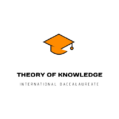
[email protected]
+919878797000.
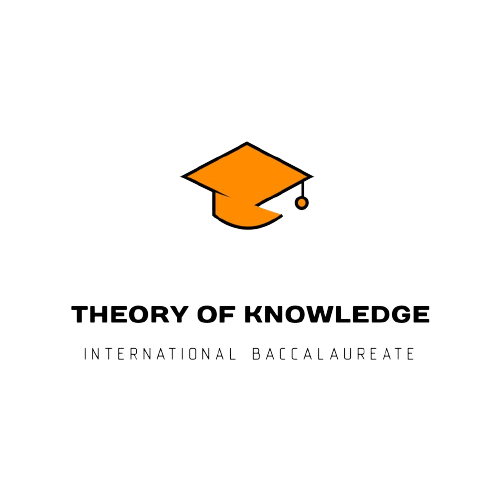
THEORY OF KNOWLEDGE 2023
A comprehensive guide.

THEORY OF KNOWLEDGE
Tok curriculum.
Discover the TOK curriculum and its components, including knowledge questions, areas of knowledge, and ways of knowing.
TOK Essay Tips
Learn essential tips and techniques for writing an impressive TOK essay that effectively addresses knowledge issues and receives high marks.
TOK Presentation
Get guidance on how to deliver an engaging TOK presentation that effectively communicates.
TOK Resources
Resources to explore TOK concepts and expand your knowledge: books, articles, and websites.
Lorem Porem
Lorem porem ipsum, 25 years of experience.
Successfully Project Finished.
Years of experience with proud
Colleagues & counting more daily
TOK ESSAY TITLES 2024
Tok essay title 1 may 2024.
Is subjectivity overly celebrated in the arts but unfairly condemned in history? Discuss with reference to the arts and history.
TOK ESSAY TITLE 2 MAY 2024
How can we reconcile the opposing demands for specialization and generalization in the production of knowledge? Discuss with reference to mathematics and one other area of knowledge.
TOK ESSAY TITLE 3 MAY 2024
Nothing is more exciting than fresh ideas, so why are areas of knowledge often so slow to adopt them? Discuss with reference to the human sciences and one other area of knowledge.
TOK ESSAY TITLE 4 MAY 2024
Do we underestimate the challenges of taking knowledge out of its original context and transferring it to a different context? Discuss with reference to two areas of knowledge.
TOK ESSAY TITLE 5 MAY 2024
Do we need custodians of knowledge? Discuss with reference to two areas of knowledge.
TOK ESSAY TITLE 6 MAY 2024
Are we too quick to assume that the most recent evidence is inevitably the strongest? Discuss with reference to the natural sciences and one other area of knowledge.
Choose from three different TOK course structures
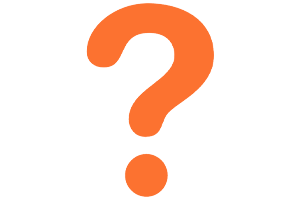
Big Question Framework

Classic TOK Lessons
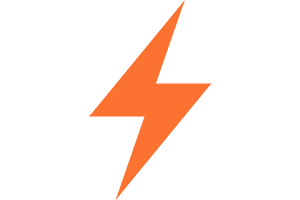
Disruptive Ideas
Take advantage of three classroom-ready courses for TOK, exclusively available to faculty members. Each course provides meticulously designed and structured lessons, supported by clear and measurable learning objectives. Packed with media-rich resources and inspired by current real-world situations and ideas, these courses will save you considerable time. Begin downloading and delivering them now.
Apply TOK ideas and concepts to the real world
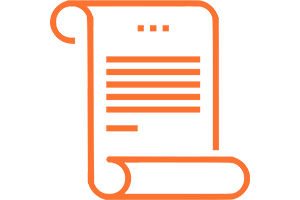
Monthly Newsletter
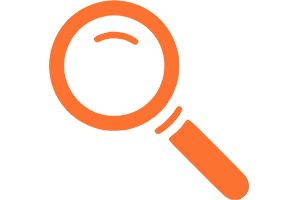
Investigating Issues

12 Key TOK Concepts
Our resources aim to assist students in exploring and comprehending the most significant current events while understanding how TOK concepts manifest in the real world. Our exclusive monthly TOK newsletter, Investigating Issues, along with the 12 Key Concepts, will aid you and your entire DP faculty in developing critical thinking skills and connecting learning to news issues, debates, and controversies. Subscribe to our complimentary newsletter here to stay updated.
Master the TOK assessment tasks
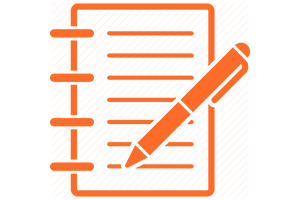
TOK Essay Support Pack
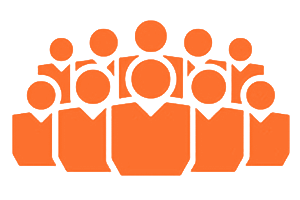
Exhibition Support Pack
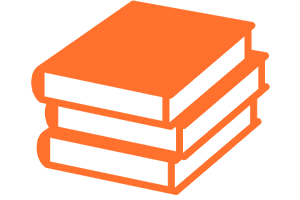
TOK Assessment Lessons
Our assessment packs, available in both English and Spanish, are specifically designed for student use. They provide a clear understanding of the assessment criteria for the TOK essay and exhibition, assisting students in creating exceptional final assessment products. With the TOK assessment lessons, teachers can effectively target and enhance the necessary skills, enabling students to approach the assessment tasks with confidence and achieve success.
Get your whole DP faculty onboard
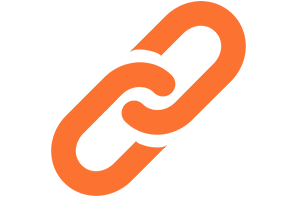
DP Integration Tool
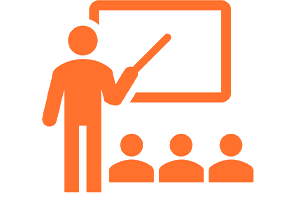
TOK Mini Lessons
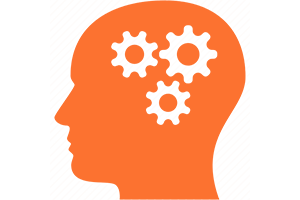
Knowledge Heros
What distinguishes us from other sites and textbooks for TOK is our commitment to catering to ALL faculty members. Our resources are designed with this in mind. The Integration Tool facilitates seamless connections between subjects and TOK concepts, while incorporating real-world events. Mini-lessons offer concise and ready-to-use classroom materials, and Knowledge Heroes empower teachers to draw inspiration from influential figures across various academic disciplines.
Prepare your pre-DP students for TOK

Thinking for Yourself
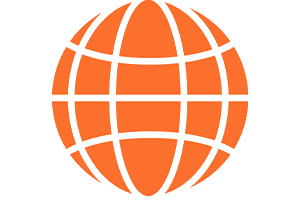
Middle Year Newsletter
We provide two pre-DP courses, namely “Thinking for Yourself” and “Worldviews,” which aim to foster critical thinking, stimulate debates, and introduce students to the concepts they will encounter in TOK. Additionally, our middle years newsletter assists students in going beyond surface-level understanding by encouraging them to delve deeper into the latest events and real-world issues.
Get trained-up for TOK

Our training programs in TOK and critical thinking are tailored to meet the needs of both specialized teachers and regular faculty members. We have collaborated with schools worldwide, assisting them in incorporating engaging, relevant, and effective TOK and critical thinking practices throughout their curriculum. Additionally, we provide free and premium webinars on TOK, along with a comprehensive collection of videos available on our YouTube channel for you to explore.
Explore the course
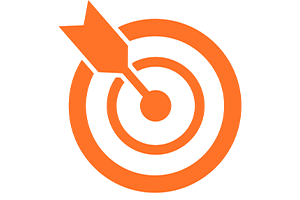
The Core Theme
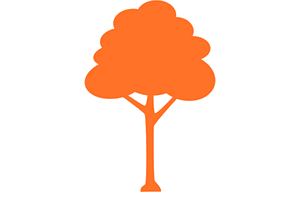
Optional Theme

Areas of Knowledge
Explore our extensive range of free course materials covering every aspect of the TOK course. Delve into the core theme, “knowledge & the knower,” as well as the optional themes like indigenous societies, language, politics, religion, and technology. Additionally, explore the various areas of knowledge such as the arts, history, human sciences, mathematics, and natural sciences. As a faculty member of our site, you’ll have exclusive access to our exploration point documents, providing in-depth insights into each component of TOK.
Download free samples
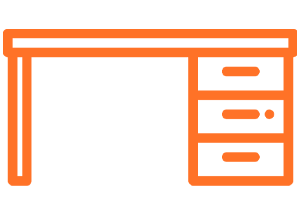
Classroom Ready TOK Lessons

TOK World Resources
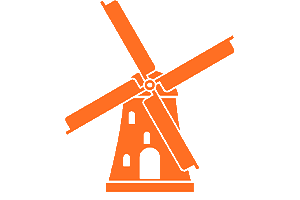
Real World Resources
Gain access to a wide array of free sample materials that showcase our approach and the type of resources available to site members for delivering the TOK course. Explore our comprehensive selection of classroom-ready lessons, organized into three distinct courses. Take a look at our TOK-world resources, designed to empower students to take ownership of their TOK journey. Additionally, discover how our real-world resources establish meaningful connections between learning and current events and issues. Download these samples to get a firsthand experience of our offerings.
Testimonials
Rahul kapoor.
Studying TOK has been an enlightening journey. It has challenged my perspectives, sharpened my critical thinking skills, and expanded my understanding of knowledge. I highly recommend this course to all IB students.
United States
Emily johnson.
TOK has been an incredibly thought-provoking course for me. It has pushed me to question everything and explore different ways of knowing. This course has truly transformed the way I approach learning and understanding the world.
María Santos
Studying TOK has opened my mind to the diverse ways in which knowledge is constructed and evaluated. It has challenged my preconceived notions and deepened my appreciation for the complexity of knowledge.
Ishita Sharma
TOK has made me realise the power of questioning and the importance of having an open mind. It has encouraged me to explore different viewpoints and engage in meaningful discussions.
Request a Callback?
Learn more from, frequently asked questions.
Theory of Knowledge (TOK) is an interdisciplinary course offered as part of the International Baccalaureate (IB) Diploma Programme. It delves into the nature of knowledge, how it is acquired, and the ways in which it is justified. TOK fosters critical thinking, reflection, and exploration of different ways of knowing and areas of knowledge.
TOK offers invaluable skills for intellectual and personal growth. It enhances critical thinking, nurtures an appreciation for diverse perspectives, and encourages curiosity. By engaging with TOK, students develop abilities that are highly beneficial for higher education, such as analyzing arguments, evaluating evidence, and constructing well-reasoned viewpoints.
TOK is assessed through an externally moderated essay and an oral presentation. The TOK essay requires students to critically analyze a prescribed title or develop a self-chosen title related to TOK. The oral presentation provides an opportunity for students to explore a real-life situation from a TOK perspective and engage in a thoughtful discussion.
TOK equips students with critical thinking skills that can be applied to everyday life. It enables individuals to navigate complex issues, evaluate sources of information, and make informed decisions. The skills and perspectives cultivated in TOK are highly transferable, benefiting students in university studies, career paths, and active engagement with the world.
Absolutely! TOK emphasizes the importance of effective communication in conveying ideas and arguments. It encourages students to express themselves clearly, develop coherent arguments, and support them with evidence. Through the oral presentation component and essay writing, TOK hones students’ communication skills, enabling them to articulate their thoughts with precision and clarity.

IMAGES
VIDEO
COMMENTS
TOK Essay Title #2. For artists and natural scientists, which is more important: what can be explained or what cannot be explained? Discuss with reference to the arts and the natural sciences. This Theory of Knowledge Essay prompt allows for a lot of creativity. Though this TOK Title requires certain Areas of Knowledge (Arts and Natural ...
The titles for May 2024 are released! Here they are below: Make sure to bookmark this page as I explain and provide examples for each of these titles in depth! UPDATE: Title 1, 2, 5 and 6 are now available. Stay tuned for more! For general guidance on how to write a good TOK essay, check out my TOK Essay advice collection.
Here are links to ideas and suggestions relating to the the six May 2023 IB ToK Essay topics: Topic 1. Is replicability necessary in the production of knowledge? Discuss with reference to two areas of knowledge. Topic 2. For artists and natural scientists, which is more important: what can be explained or what cannot be explained?
Furthermore, you will find links for 2 different May 2023 TOK essay samples that were written by our IB experts. Feel free to use them for inspiration. TOK essay titles and questions for May 2023. ... This article is a complete guide to the November 2023 TOK essay prompts, which includes detailed explanations of each prompt along with samples ...
2.2K. TOK Talk · TOK Essay Title 2: Explained? Today I had a coffee with Bill Kyzner and Bob Scheer and we unpacked the 2023 May Title 2: For artists and natural scientists, which is more important: what can be explained or what cannot be explained? Discuss with reference to the arts and the natural sciences. Questions that arose included ...
I can help you with Theory of Knowledge prompt #2! This TOK prompt is one of the best in the International Baccalaureate's required essay titles this year. I...
Title 2 of the May 2023 TOK essay prompt presents an interesting twist in its wording. Instead of explaining which ideas can or cannot be explained, the task is to evaluate perspectives on the importance of ideas that can be explained versus those that cannot be explained.
August 15, 2023. Navigating the complex web of ToK essay prompts can feel like trying to decipher an ancient manuscript - it's challenging, yet deeply rewarding. Every year, the IB presents students with fresh, thought-provoking questions that aren't just about showcasing your knowledge but also your ability to reason, reflect, and engage ...
Here you'll find the Theory of Knowledge Essay prescribed titles for the May 2023 session.. The video analysis of these titles is also available already in the member's area.--which you can watch using a free trial!(Just click the "subscribe" tab at the top of this page.Once you're signed up and signed in, the video link will work for you).
Title 2 of the May 2023 TOK essay prompts presents a unique twist in its wording. Instead of asking for an explanation of which ideas can or cannot be explained, the essay calls for an evaluation of perspectives on the importance of two types of ideas: those that can be explained and those that cannot. ...
Further guidance on the TOK essay and exhibition can be found in the IB's Programme Resource Centre (PRC). Materials in the PRC are only available to existing IB World Schools. These materials are free. There are a number of resources on TOK in the IB Store, which are available to everyone. Find out how to become an IB World School.
List of IB TOK Essay Prompts November 2023. November Prompt 1 - Are facts alone enough to prove a claim? Discuss with reference to any two areas of knowledge. This question invites us to explore the nature of facts and their role in validating claims. Consider the AOKs of Natural Sciences and Human Sciences. In Natural Sciences, facts are ...
The prescribed titles for the November 2023 TOK Essay has been released! Here are all the titles with detailed explanation and examples to get you started: Are facts alone enough to prove a claim? Discuss with reference to any two areas of knowledge. If "the mathematician's patterns, like the painter's and the poet's, must be beautiful ...
The November 2023 titles for the IB Theory of Knowledge Essay have been released! Let's face it - the TOK essay can be very intimidating. With so many topics to choose from and so many ideas bouncing around, it can be hard to know where to begin. That's where we come in.
The TOK essay prescribed titles for November 2023 are finally out. Since many students struggle with TOK essays, it's quite good news that IB students have a lot of time to check those TOK prompts. No more general words, and dry theory, I'm sharing a list of the TOK titles. I will start with a general list and move further to detailed ...
The prescribed titles for the November 2023 TOK Essay has been released! Here are all the titles with detailed explanation and examples to get you started: 1. Are facts alone enough to prove a claim? Discuss with reference to any two areas of knowledge. 2. If "the mathematician's patterns, like the painter's and the poet's, must be beautiful" (G.H. Hardy), how might this impact the production ...
Here you'll find the Theory of Knowledge Essay prescribed titles for the November 2023 session.. The video analysis of these titles is also available already in the member's area.--which you can watch using a free trial.(Just click the "subscribe" tab at the top of this page.Once you're signed up and signed in, the video link will work for you).
See what past students did and make your TOK Essay perfect by learning from examiner commented examples! Exemplars. Review. Login. JOIN FOR FREE. ... May 2025 May 2024 November 2023 May 2023 November 2022 May 2022 November 2021 May 2021 November 2020 May 2020 Other. Apply. Filter exemplars. IB College. Category. Subject. Type a subject. Type a ...
There are two assessment tasks in the TOK: an essay and a presentation. While a presentation encourages students to explore a real-life situation through the lens of TOK, an essay is written on the basis of the various questions provided by the International Baccalaureate Organisation. The presentation is to assess a student's ability to ...
Theory of knowledge (TOK) is assessed through an exhibition and a 1,600 word essay. It asks students to reflect on the nature of knowledge, and on how we know what we claim to know. TOK is part of the International Baccalaureate® (IB) Diploma Programme (DP) core, and is mandatory for all students. Learn more about theory of knowledge.
It's officially TOK essay season! As an IB student, you know the struggle is real when it comes to writing these complex Theory of Knowledge essays. You want to score high, but the prompts are confusing, and constructing a thoughtful, organized, and convincing with a word limit of just 1600 words is tough.
The following guide will provide you with an overview of what examiners look for in a TOK essay before breaking down the steps you need to take to complete yours to a high standard. Your essay will be marked by an external IB examiner and given a score out of 10. These 10 points are divided into 5 levels, ranging from 'excellent' to 'rudimentary'.
THEORY OF KNOWLEDGE 2023 A Comprehensive Guide CONTACT US THEORY OF KNOWLEDGE TOK Curriculum Discover the TOK curriculum and its components, including knowledge questions, areas of knowledge, and ways of knowing. TOK Essay Tips Learn essential tips and techniques for writing an impressive TOK essay that effectively addresses knowledge issues and receives high marks.